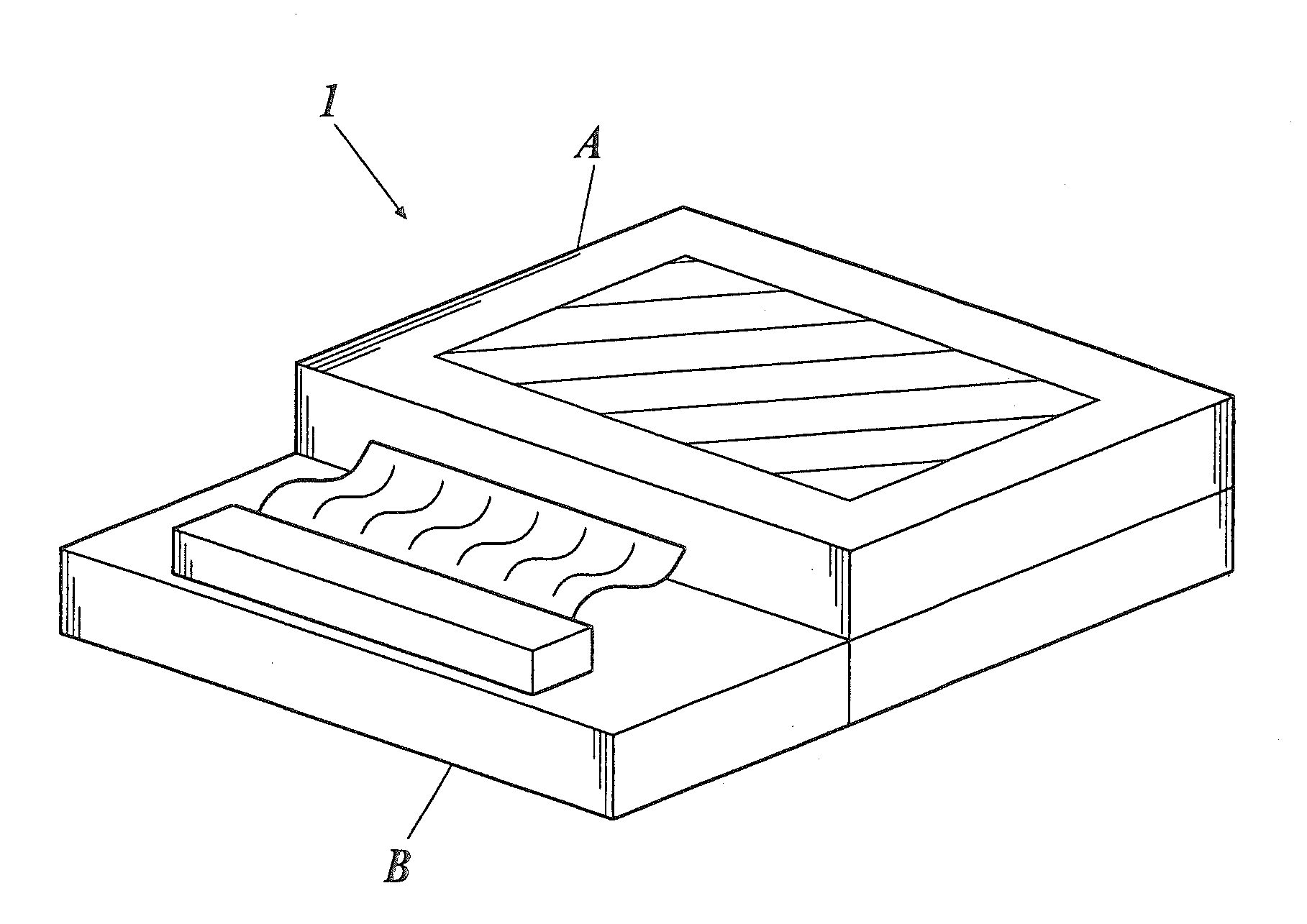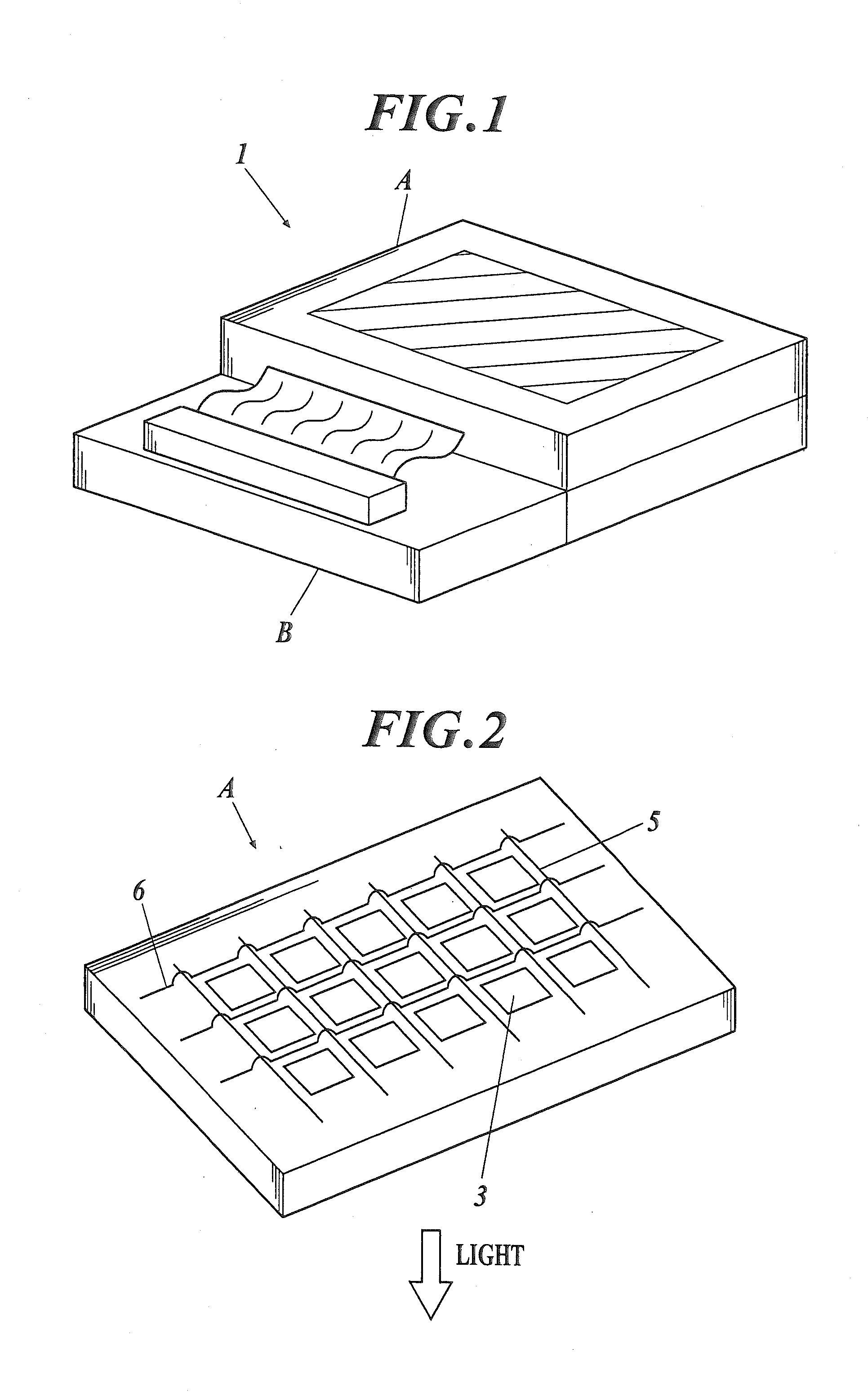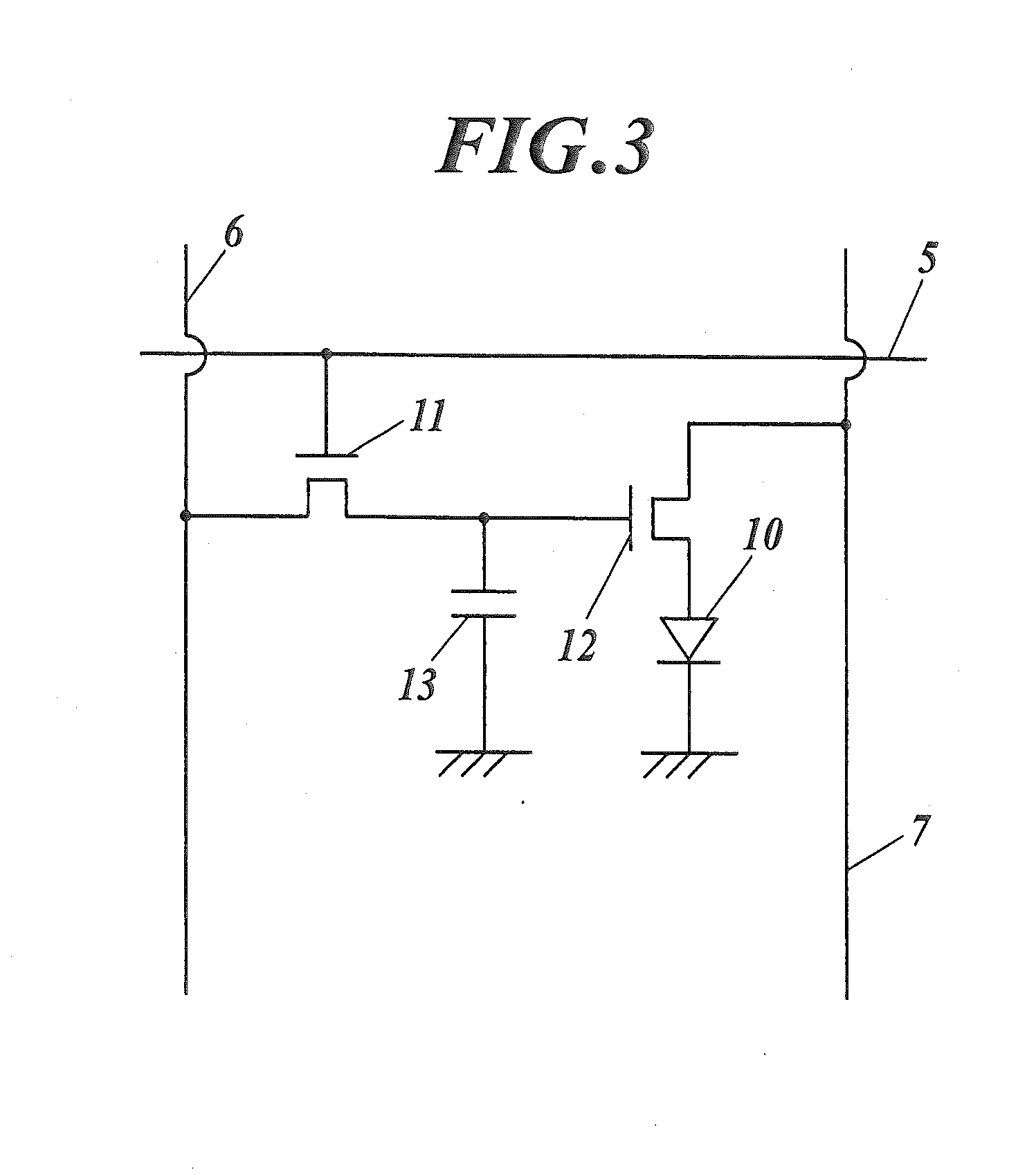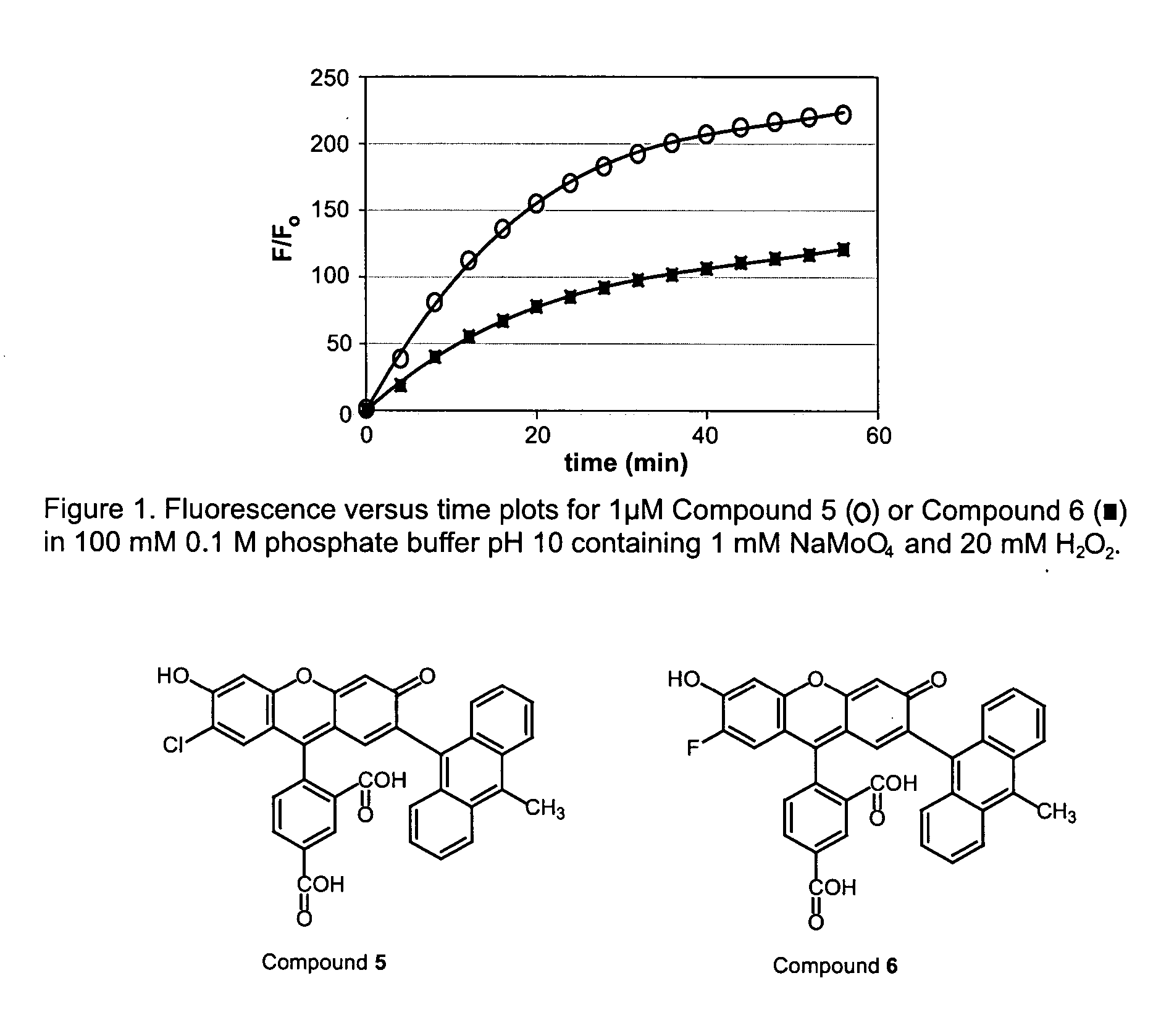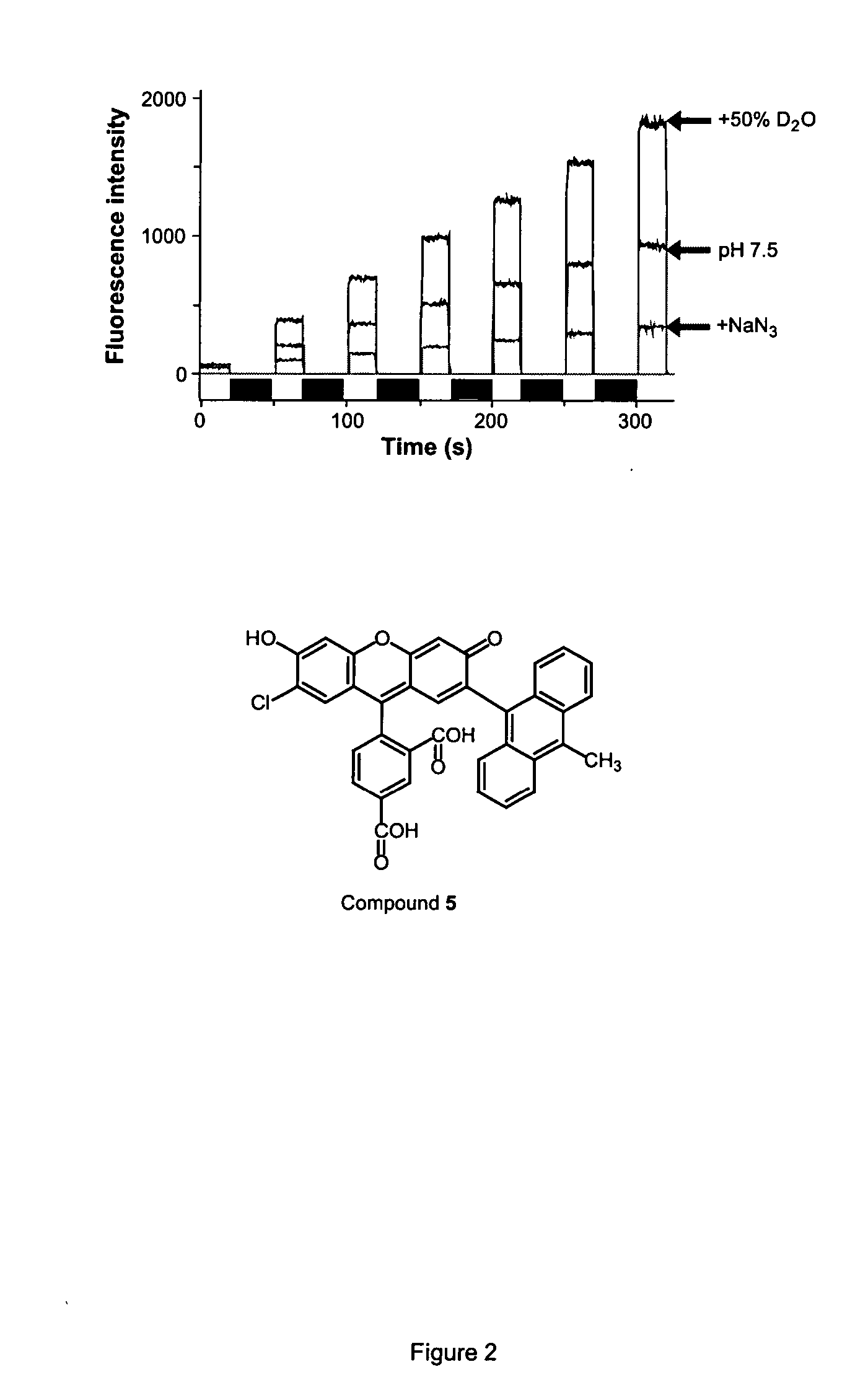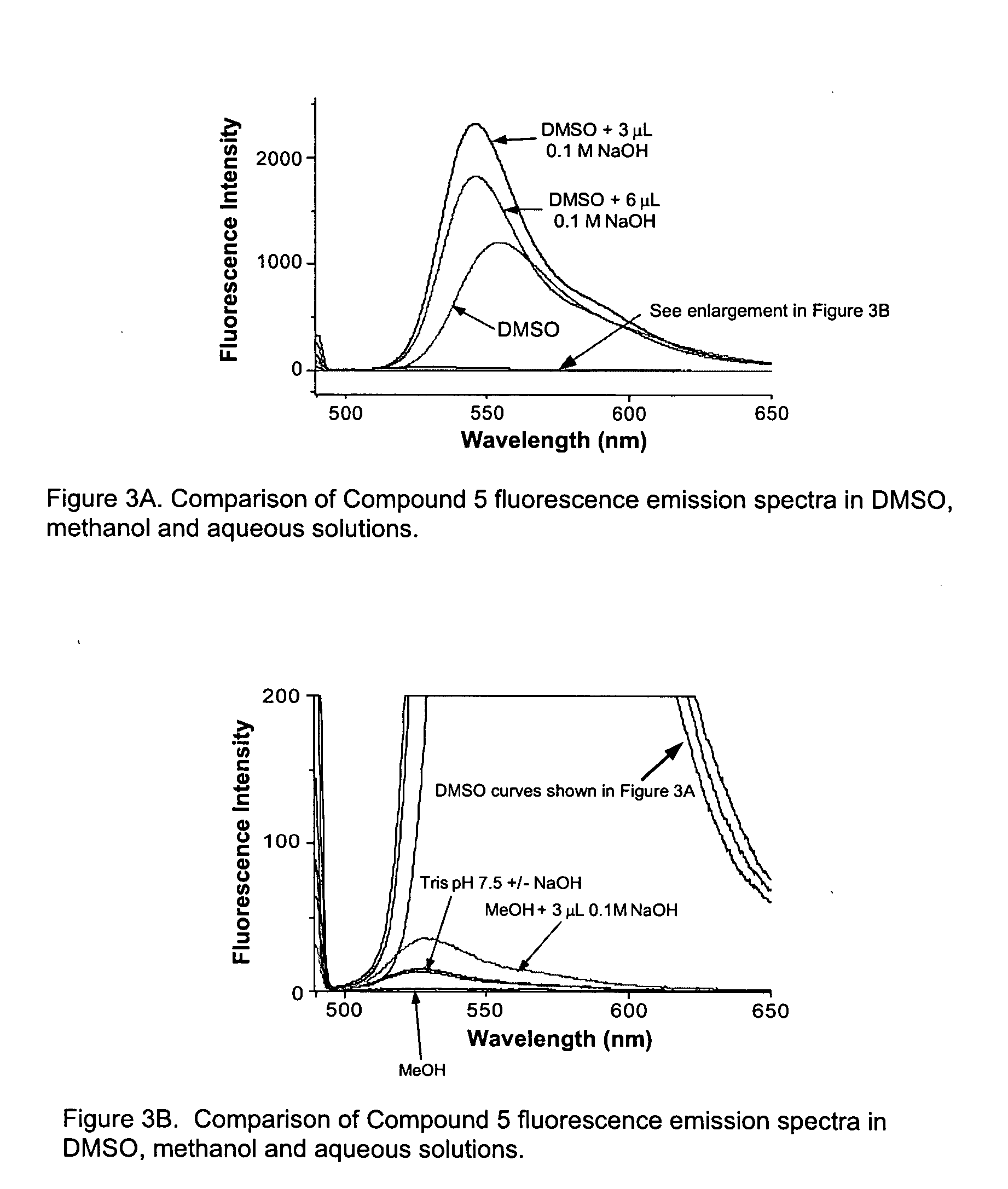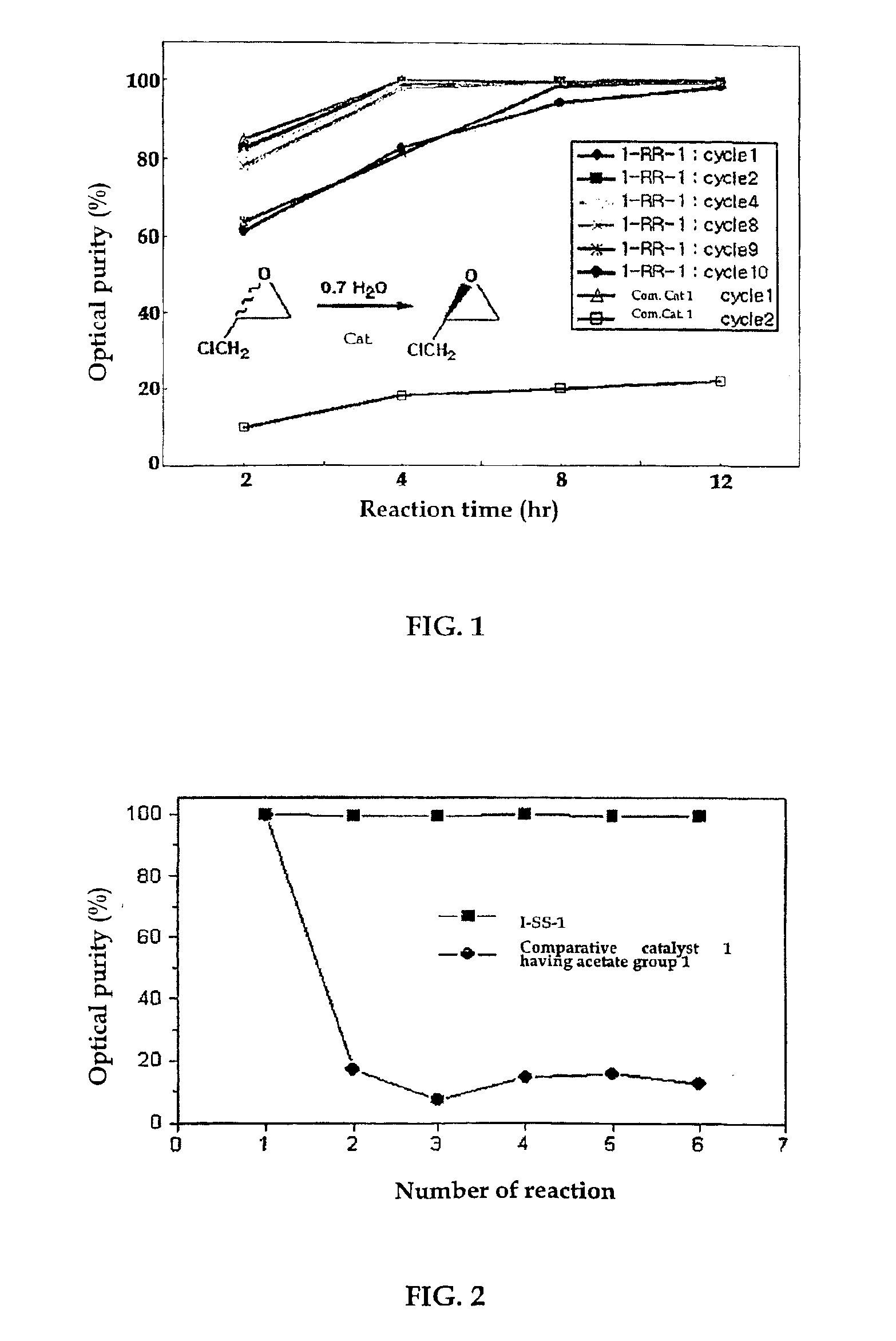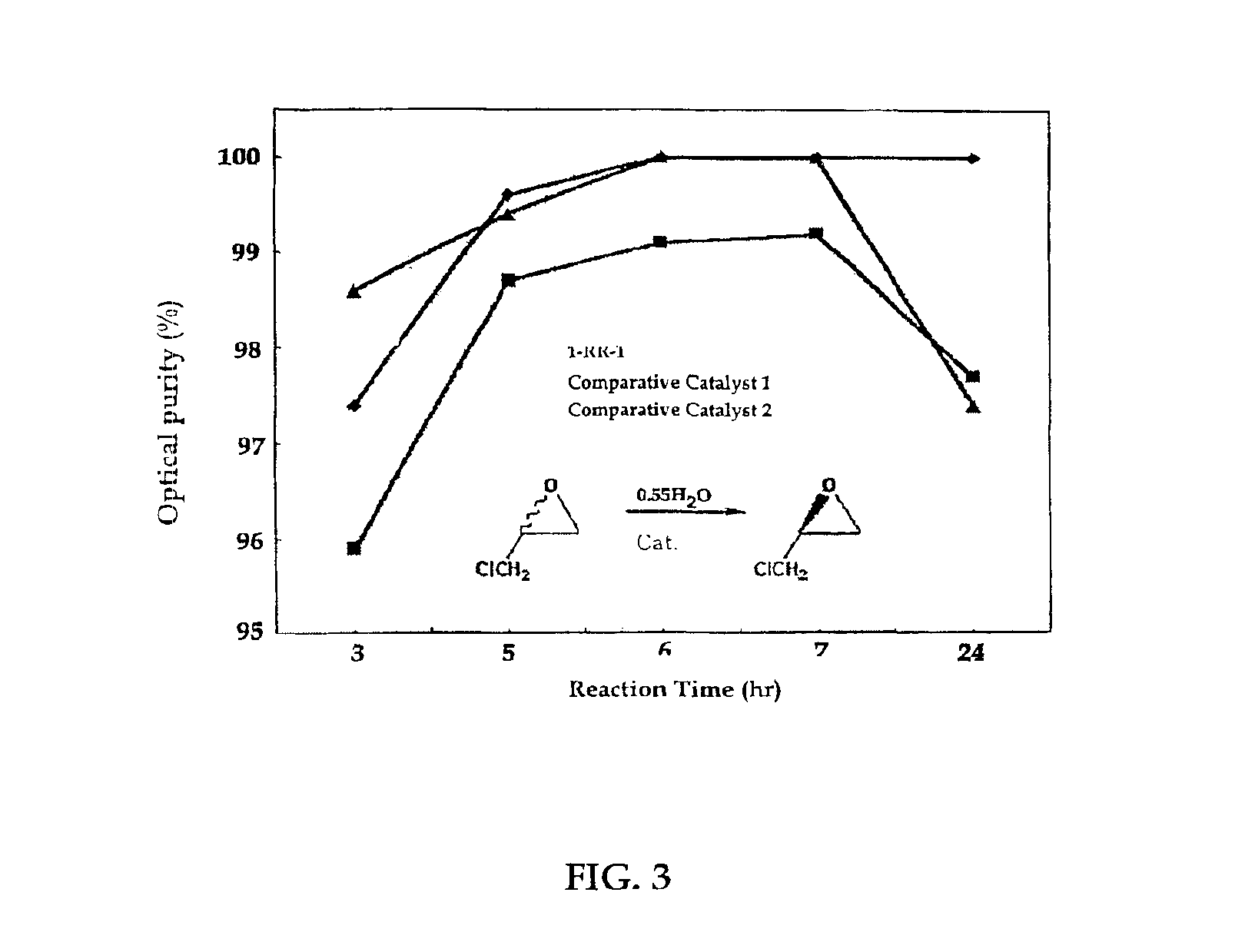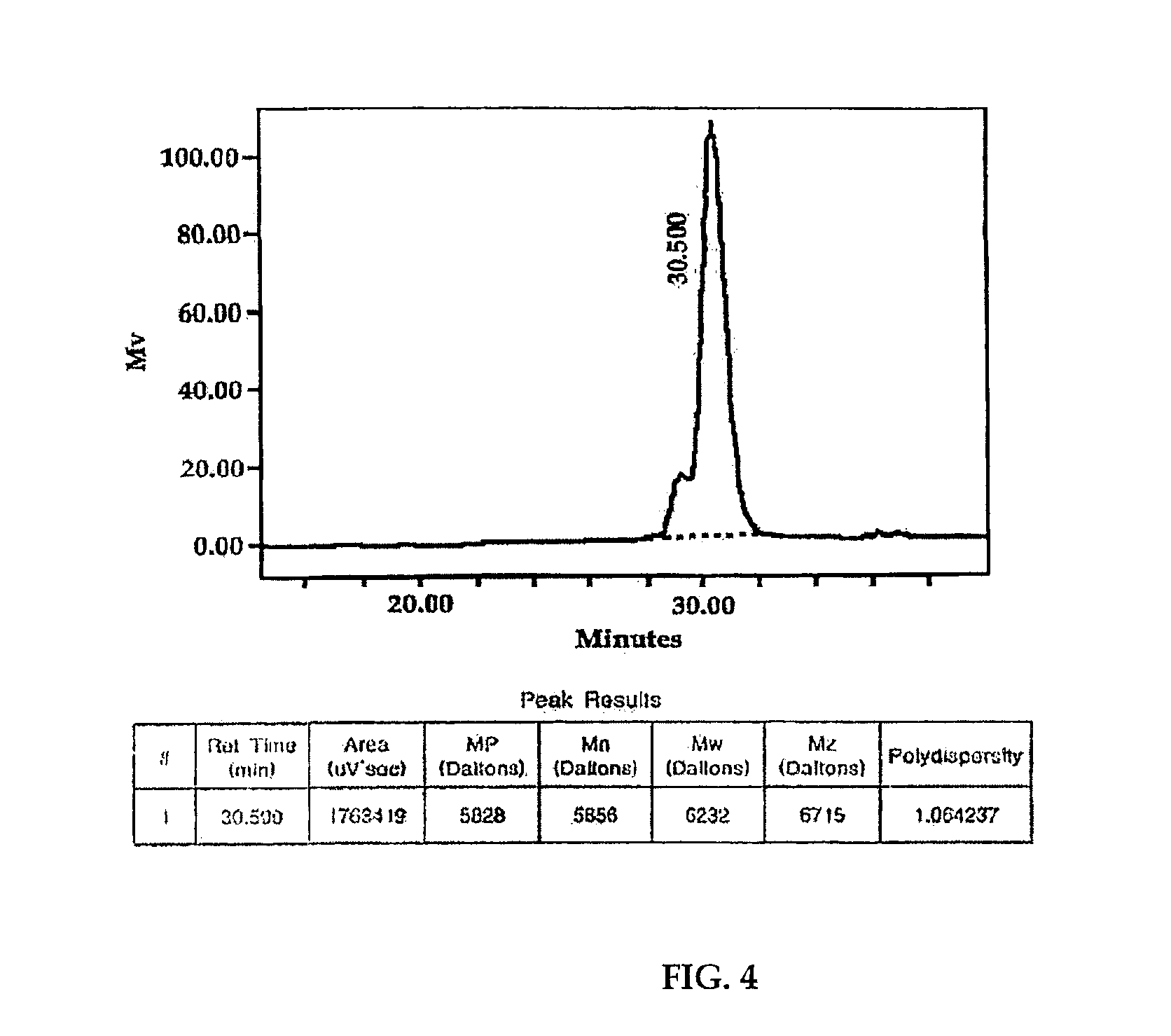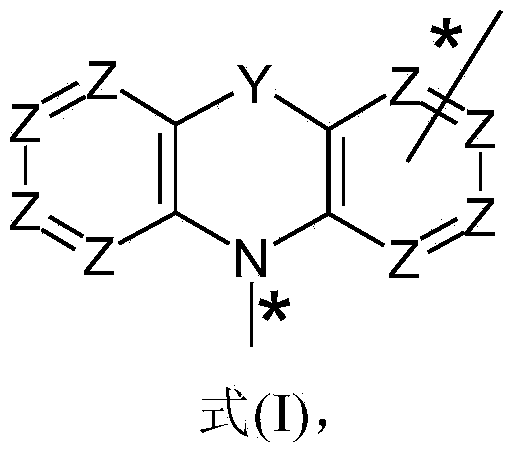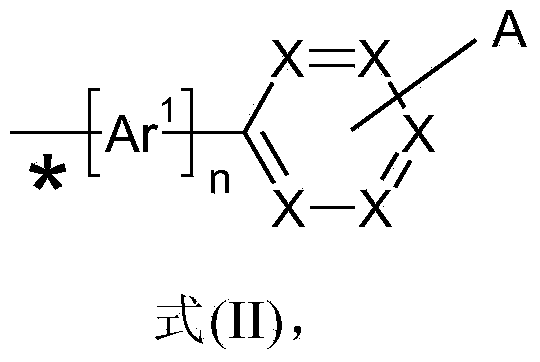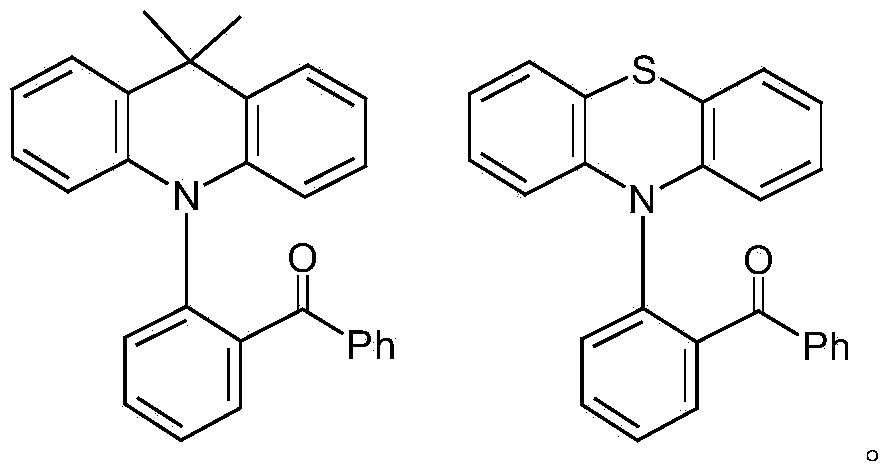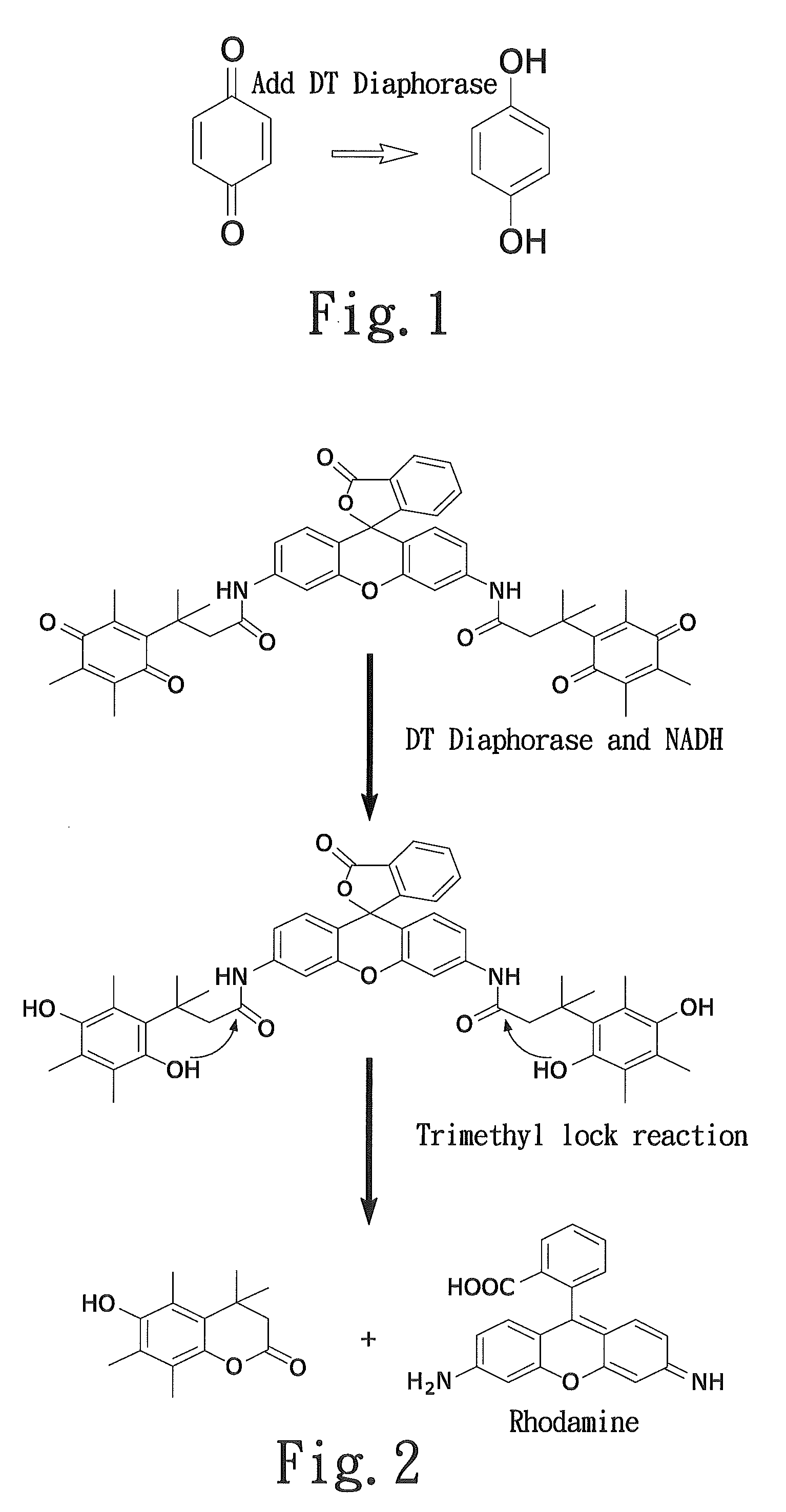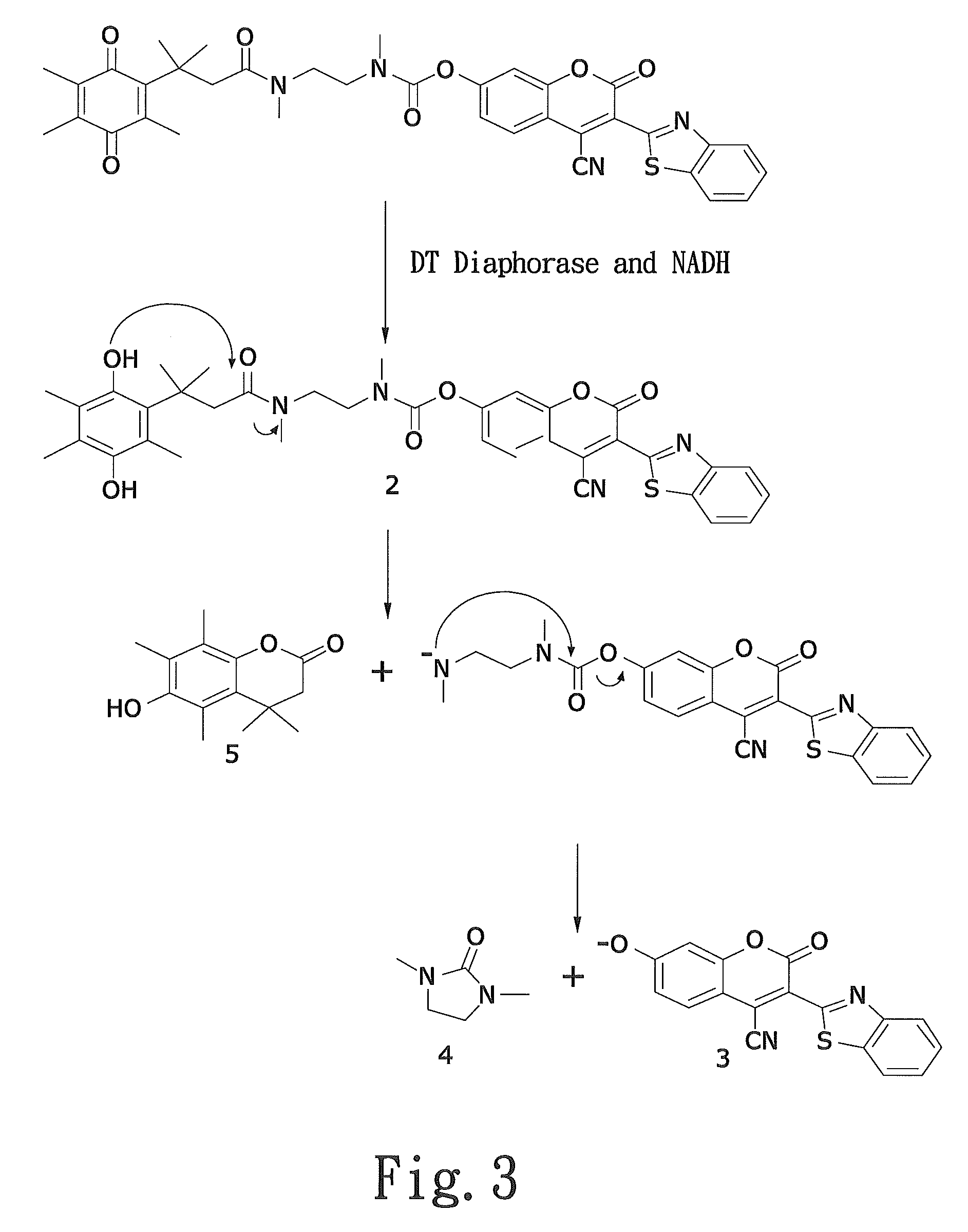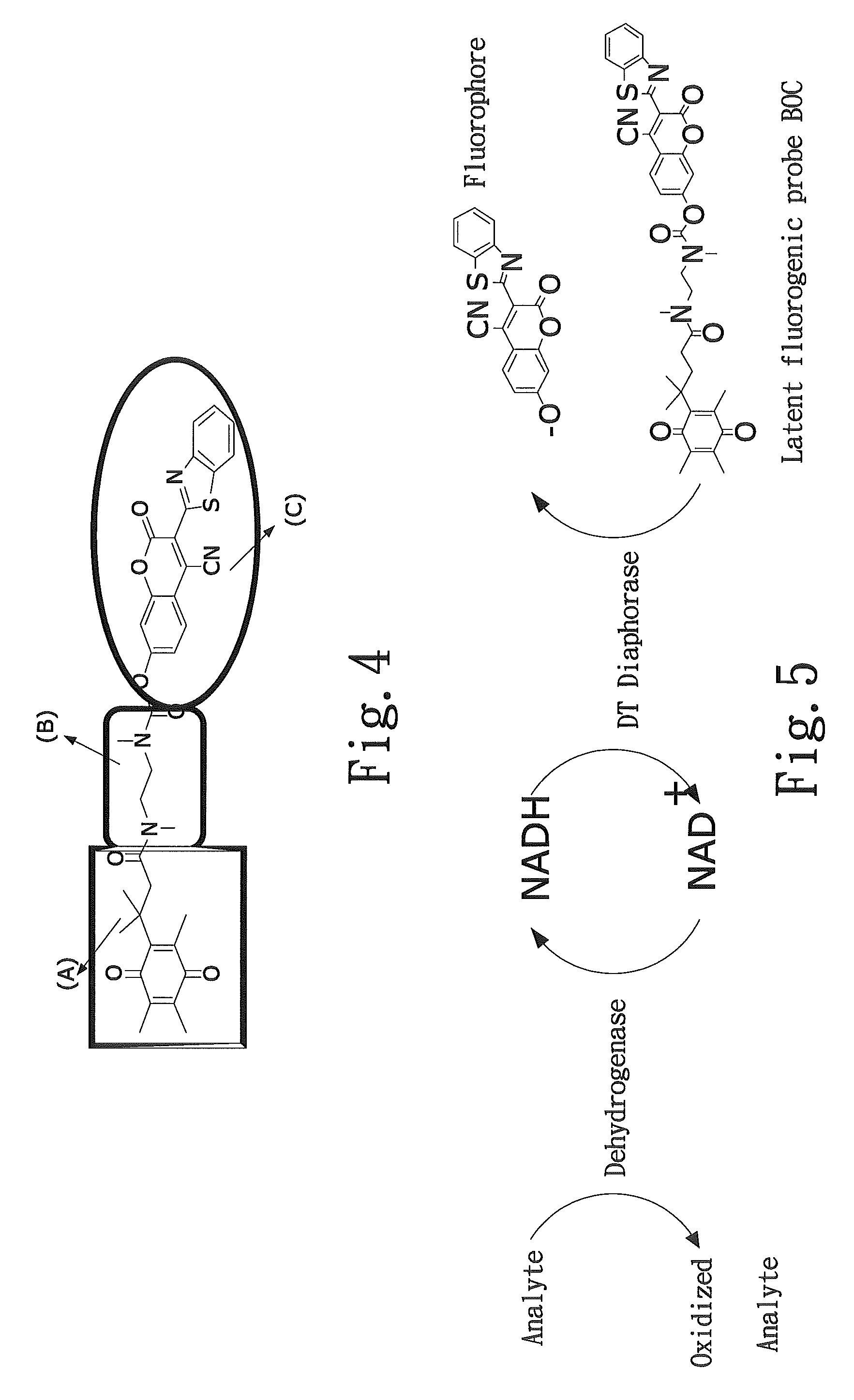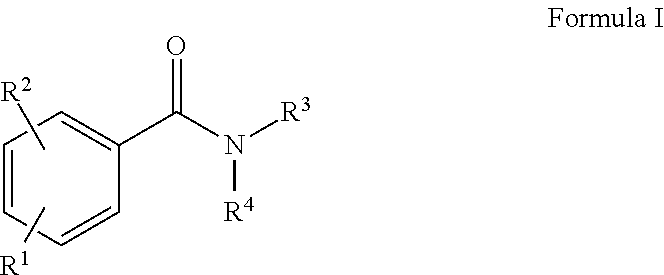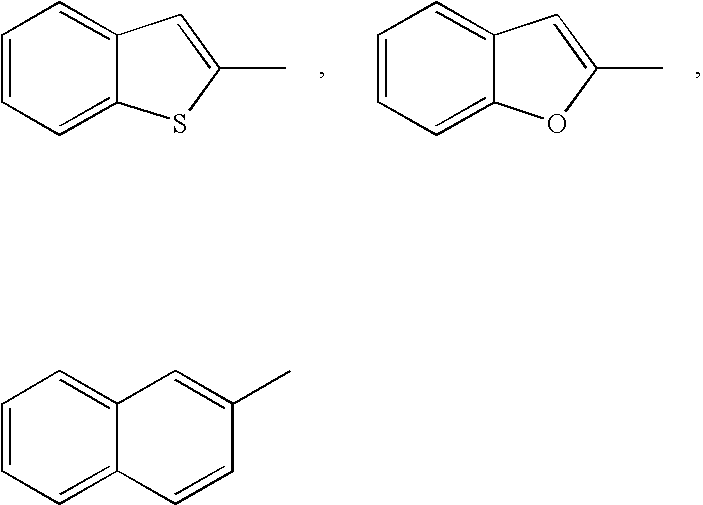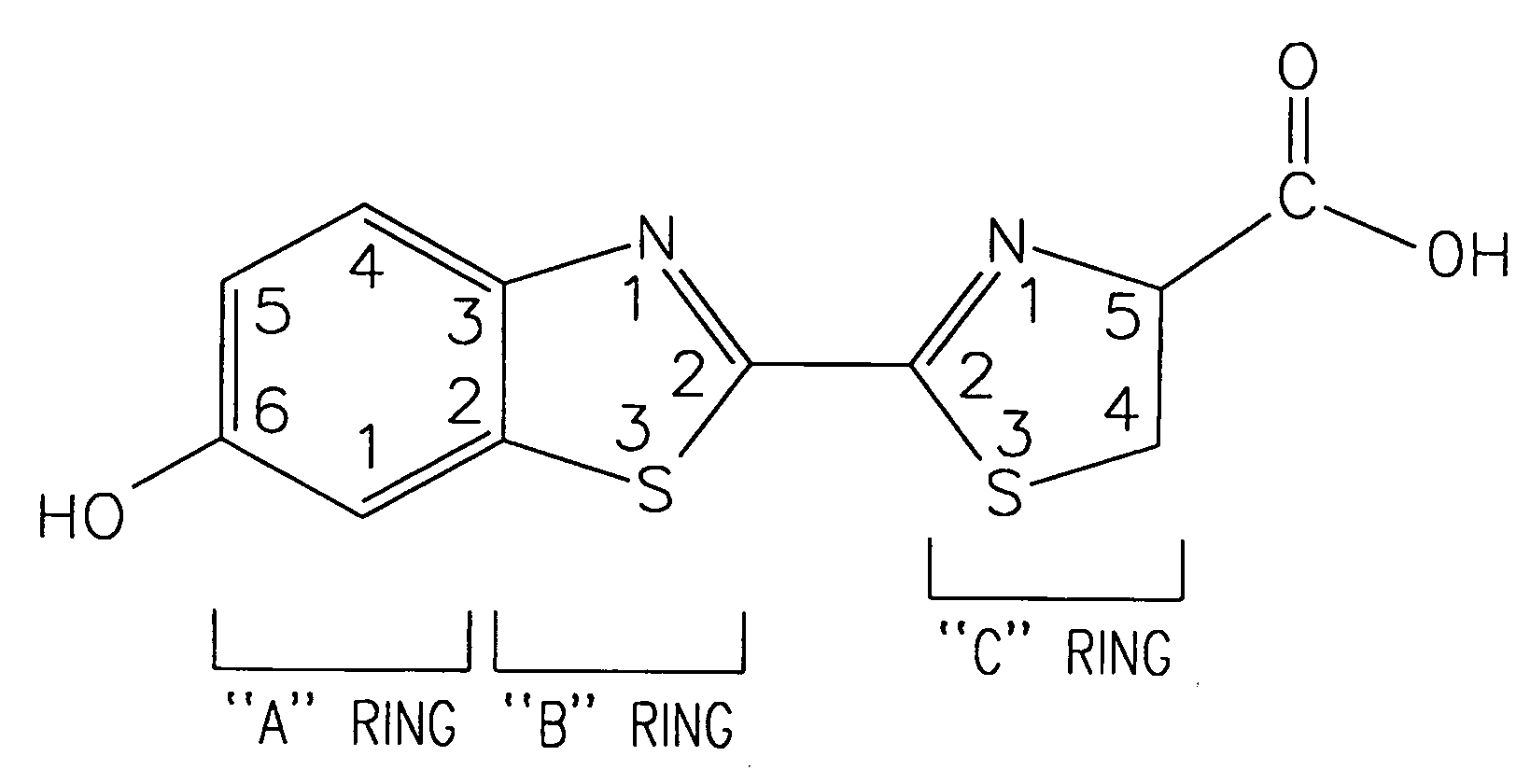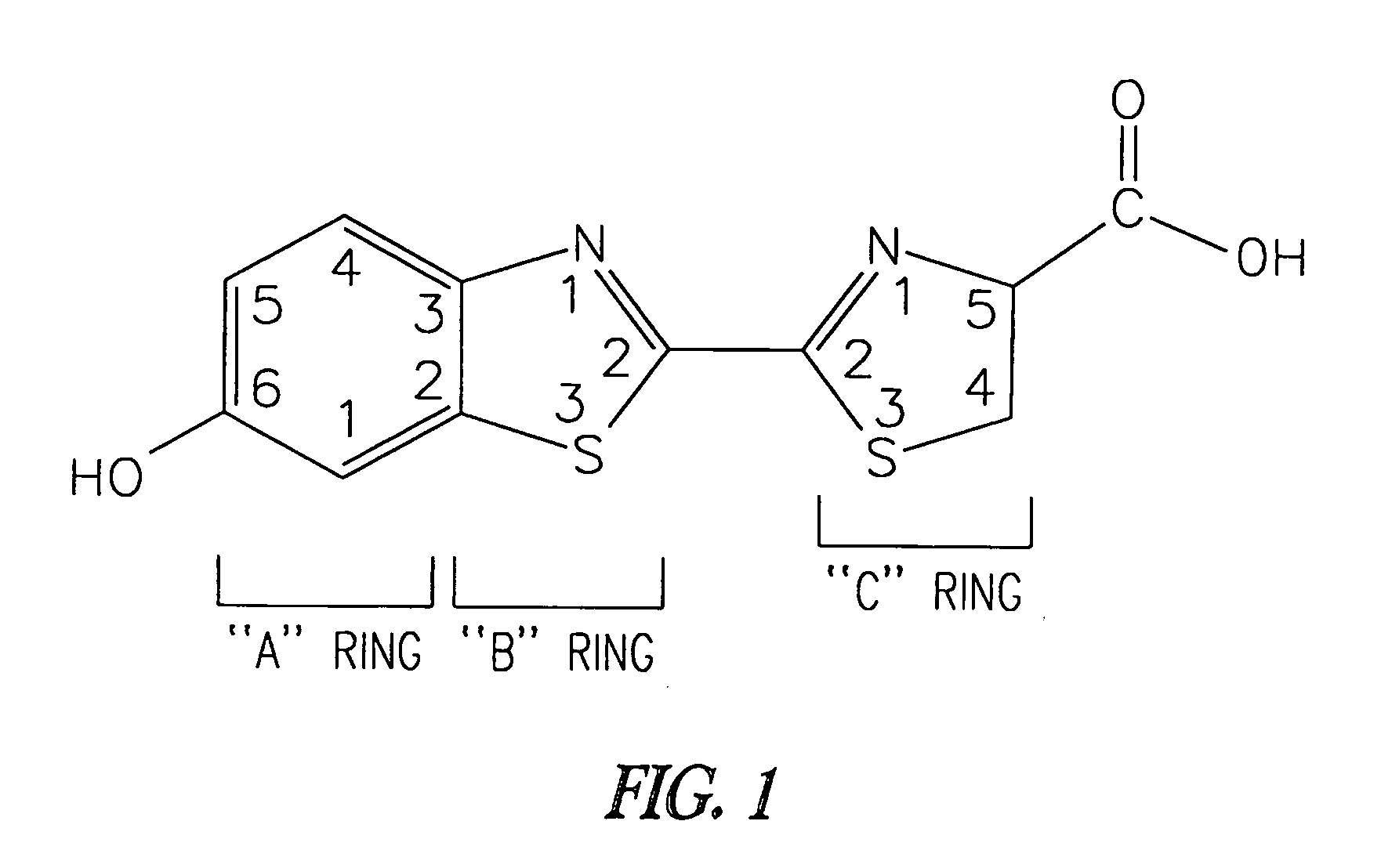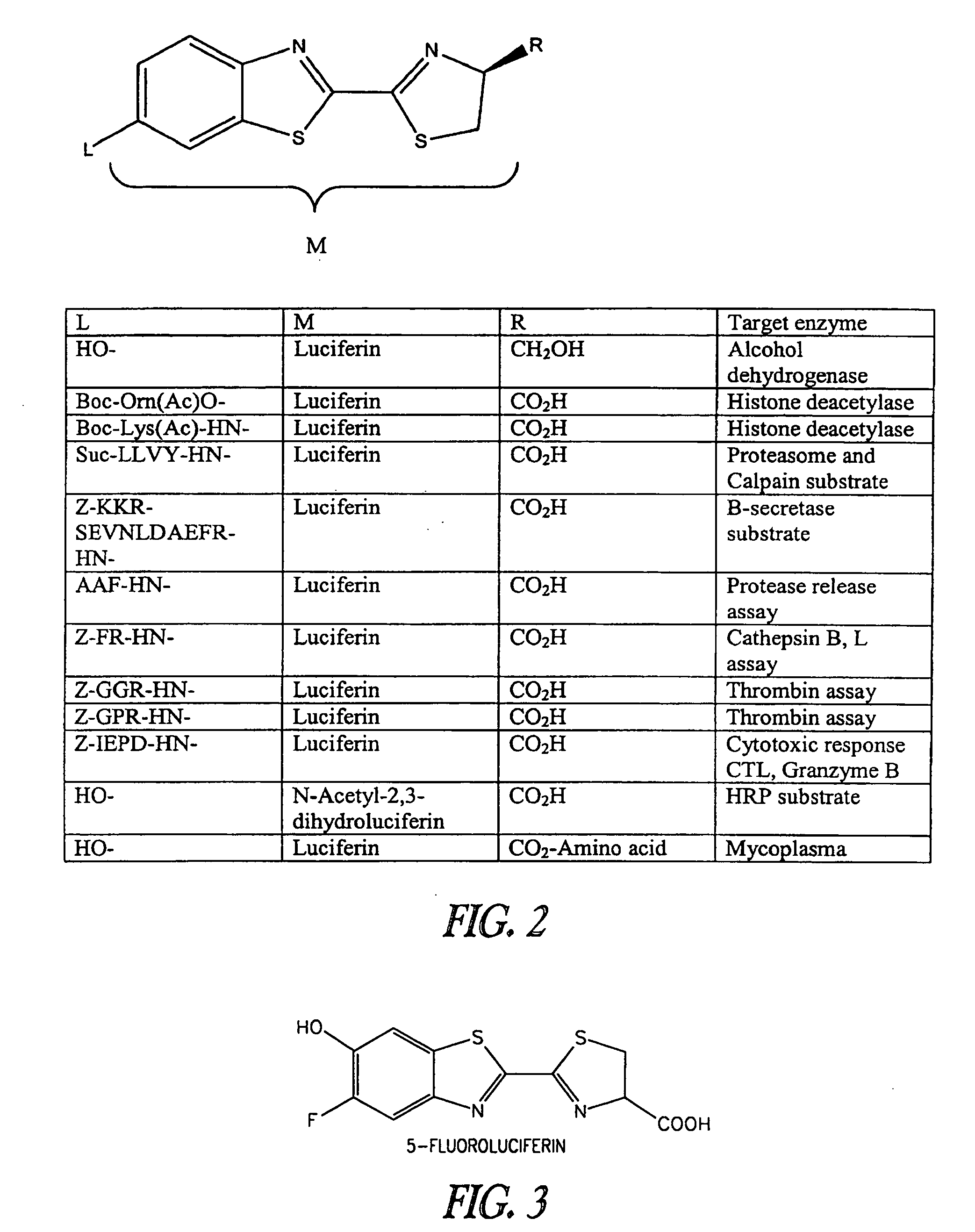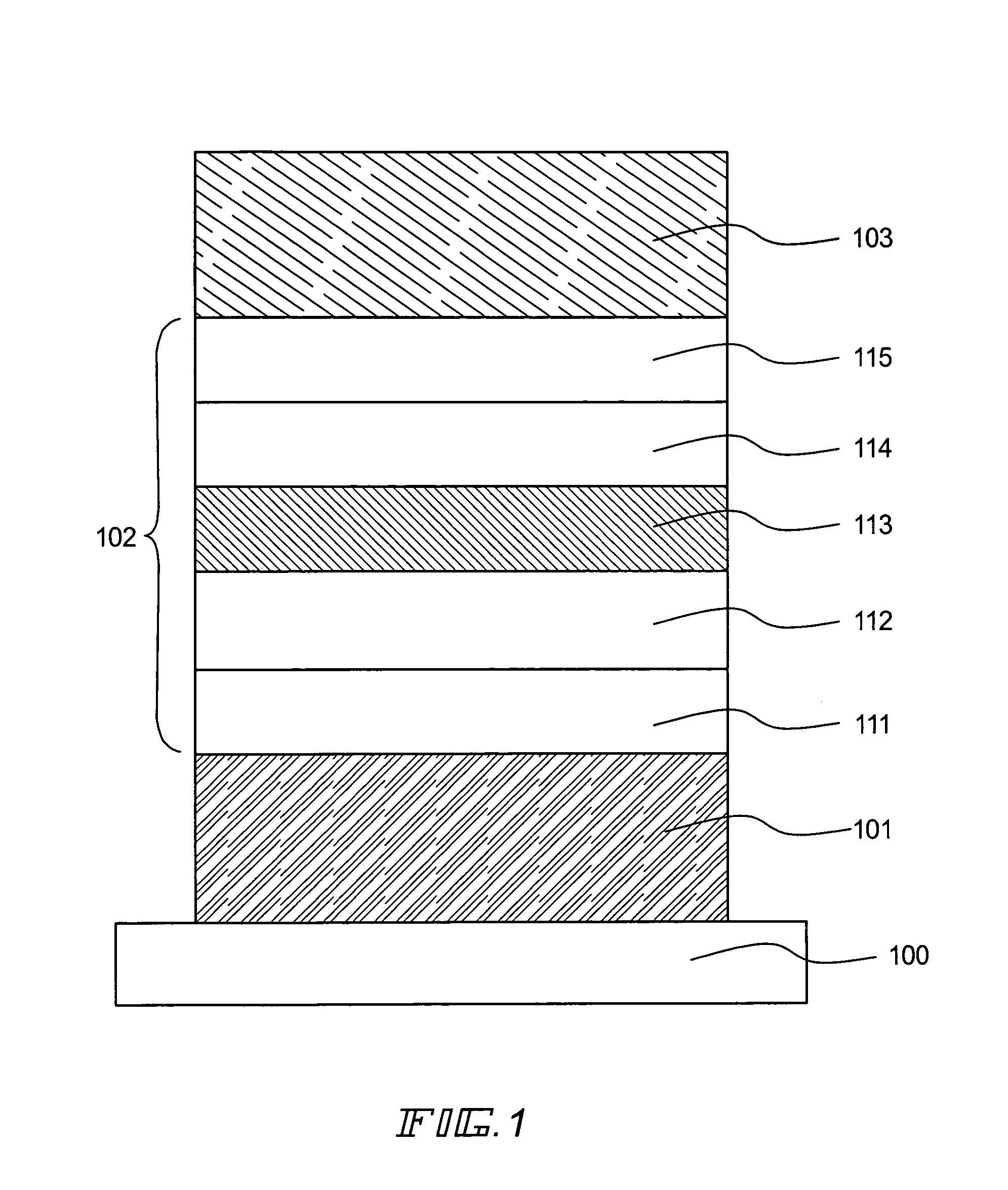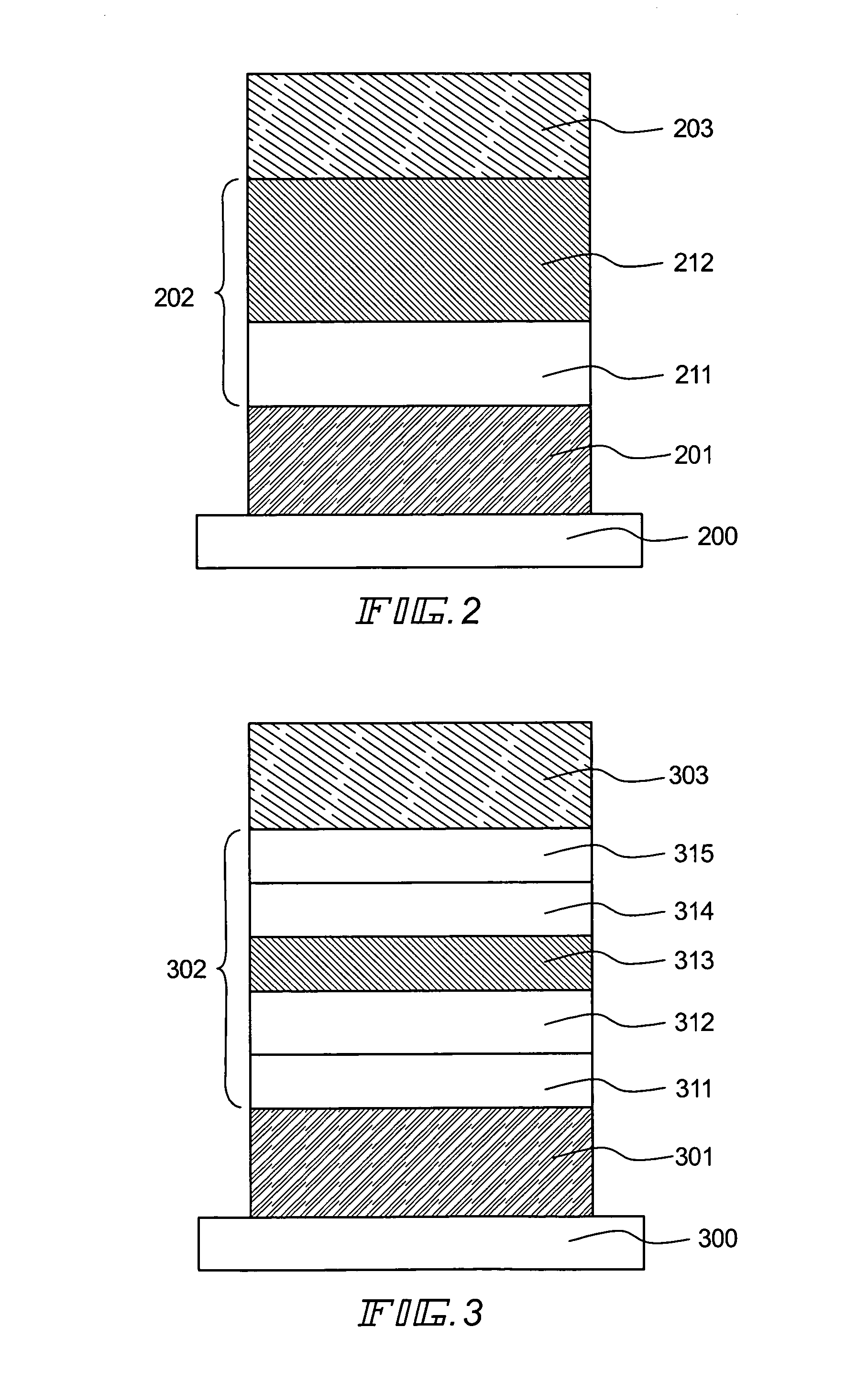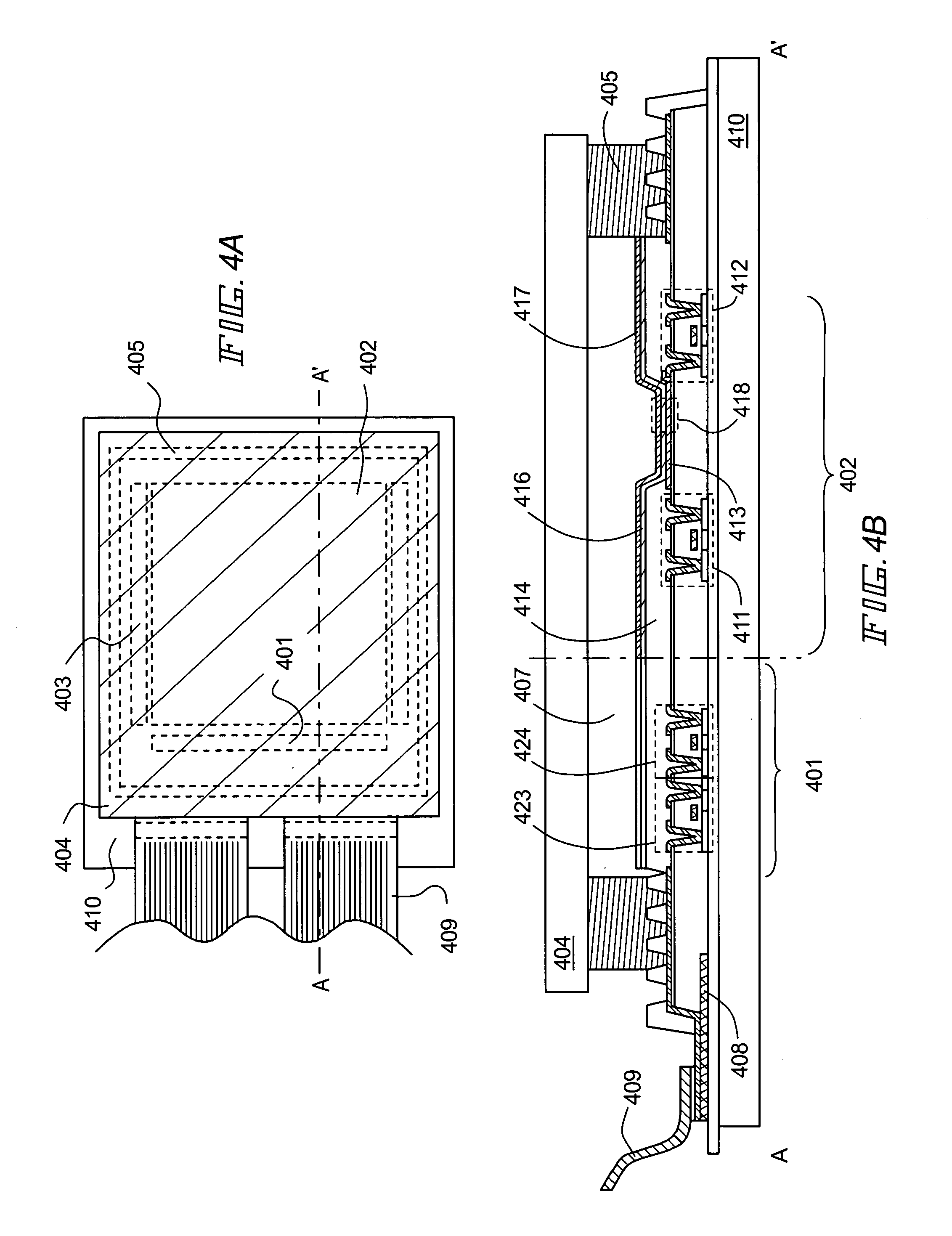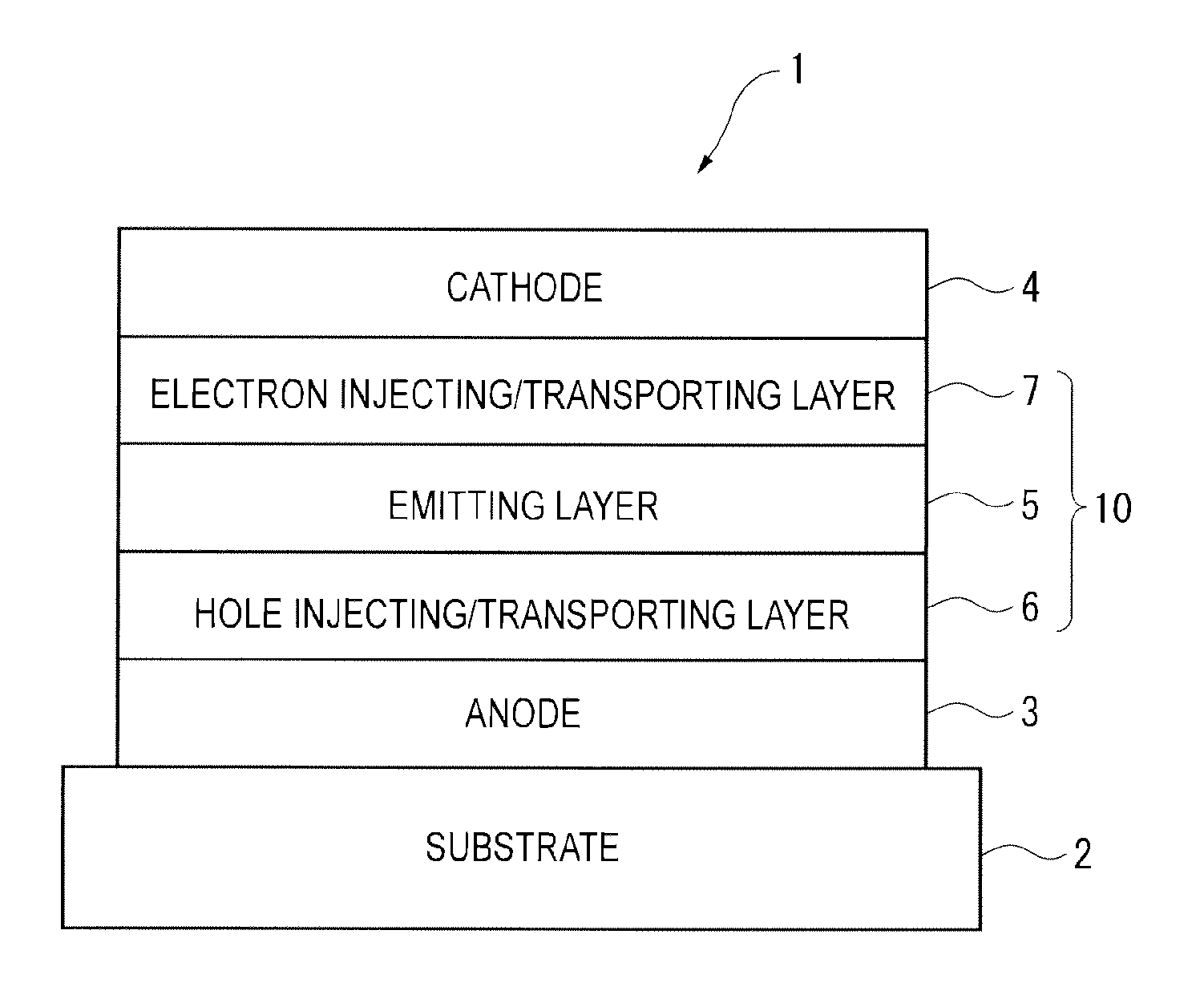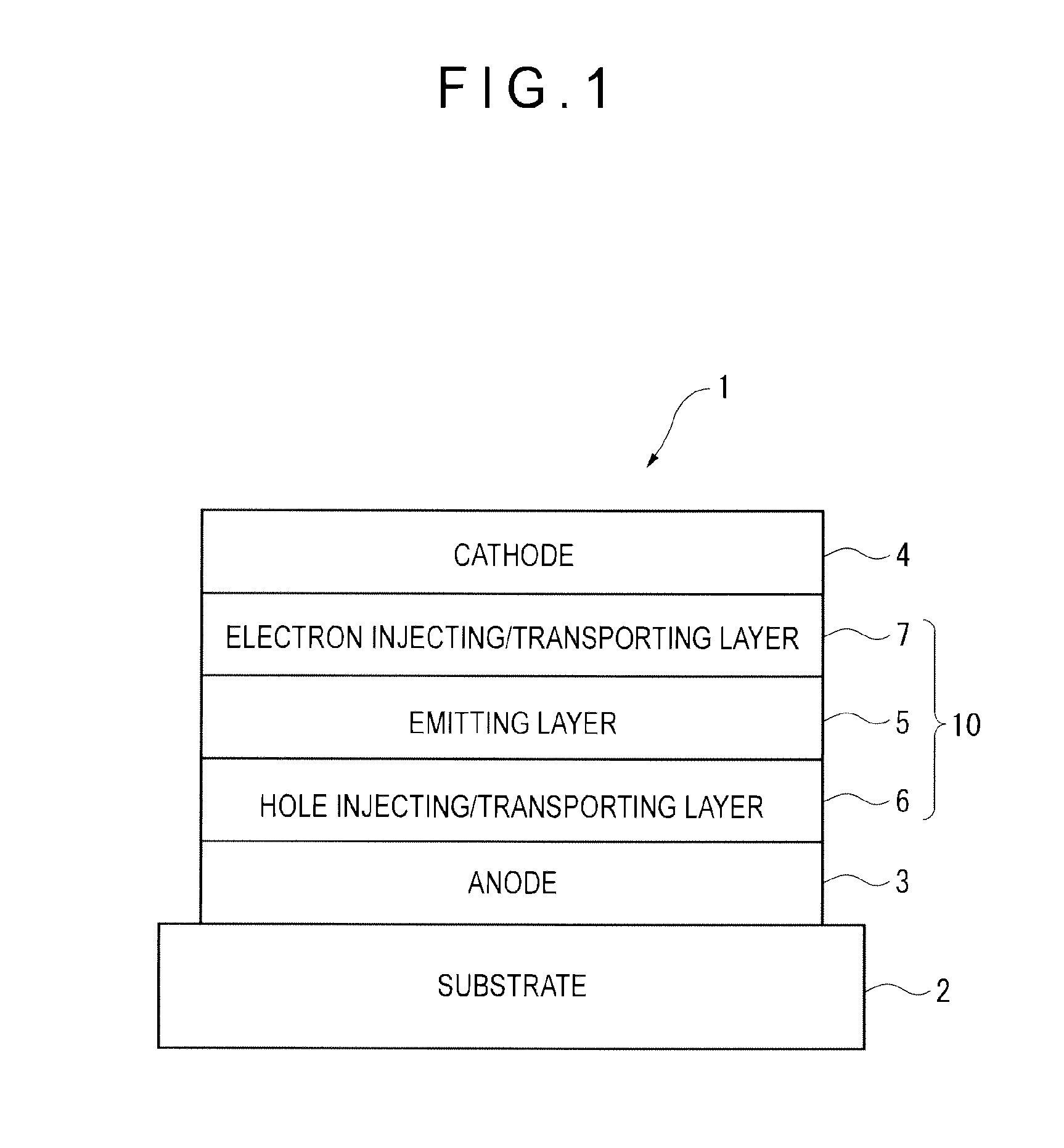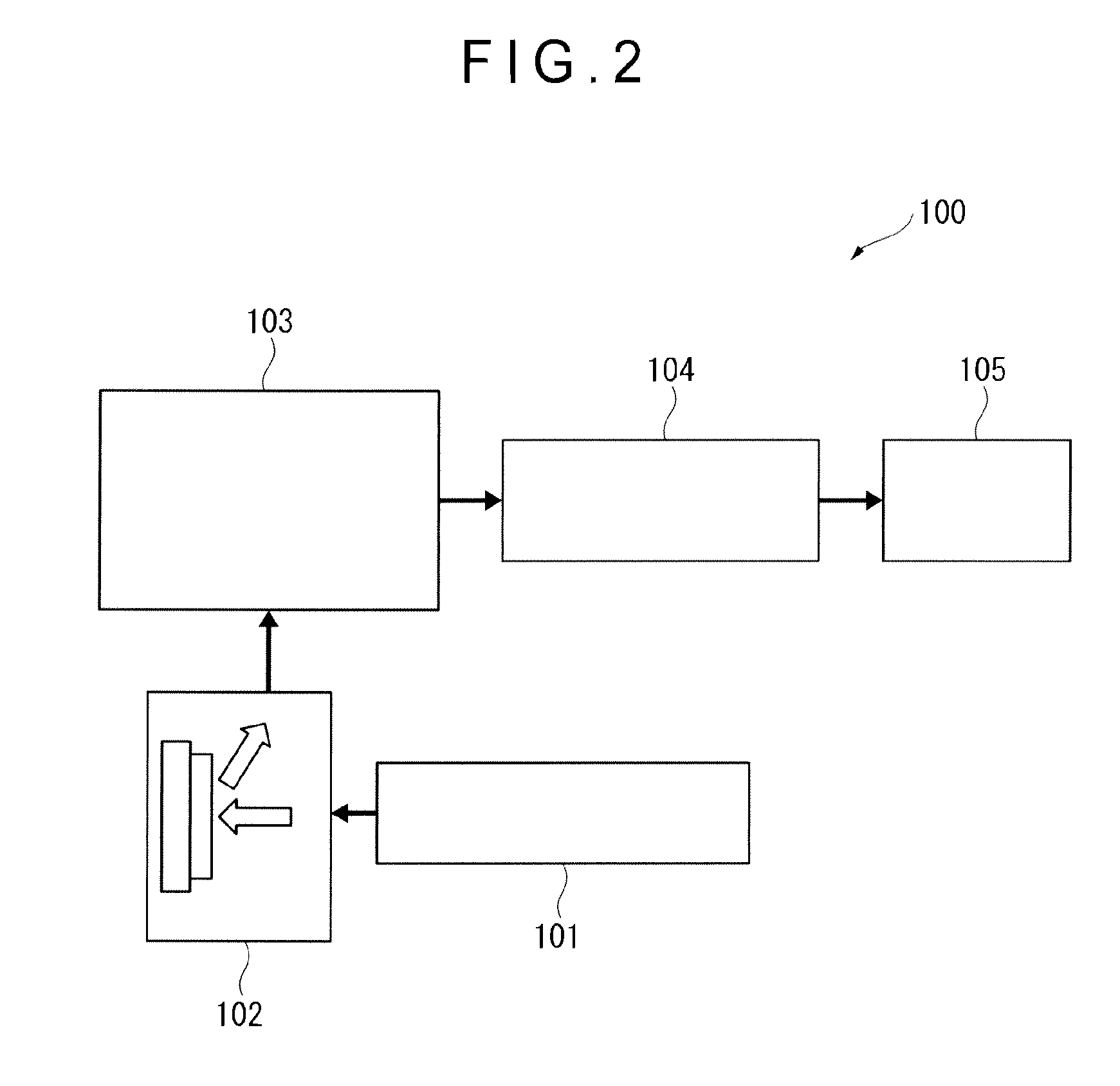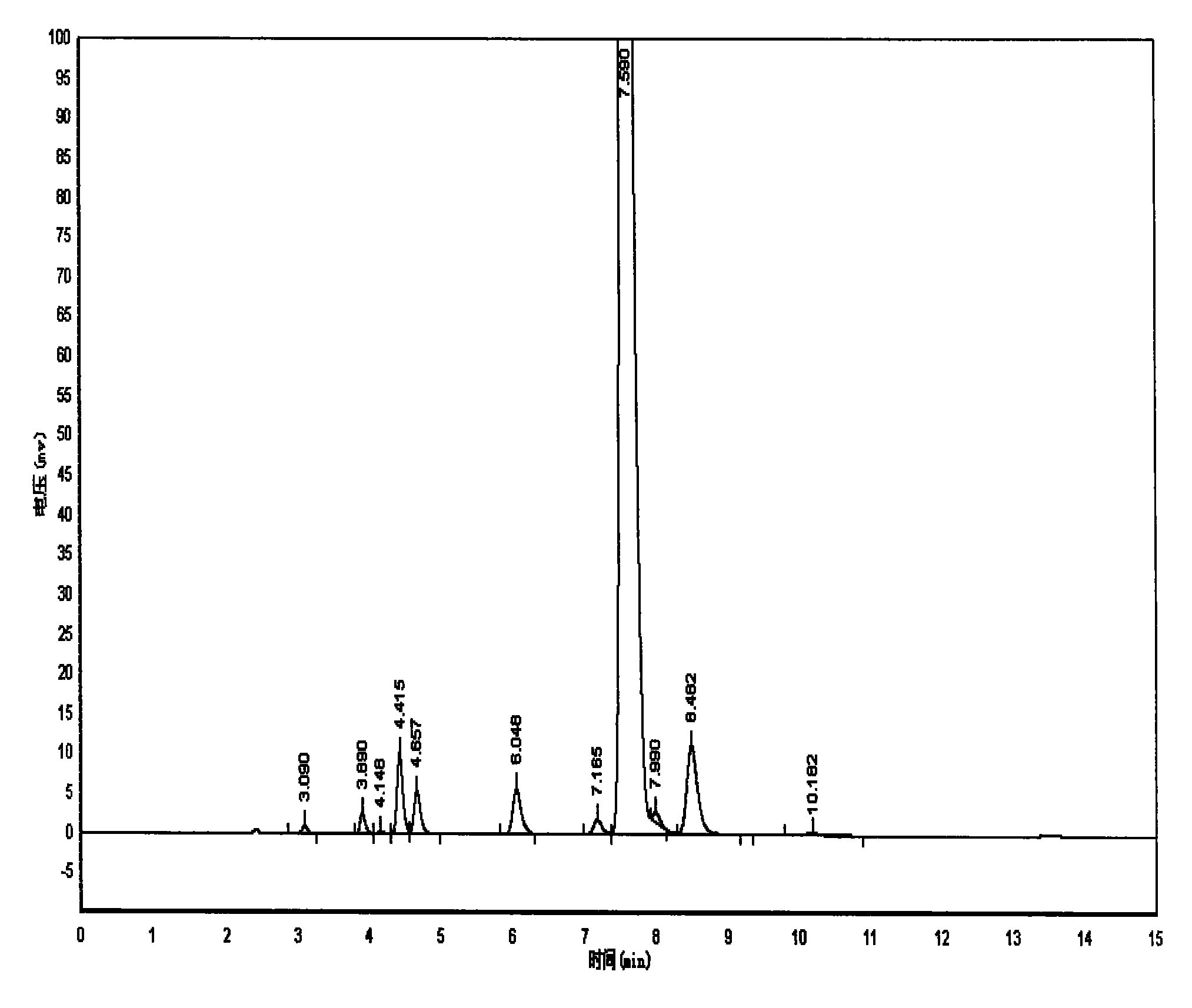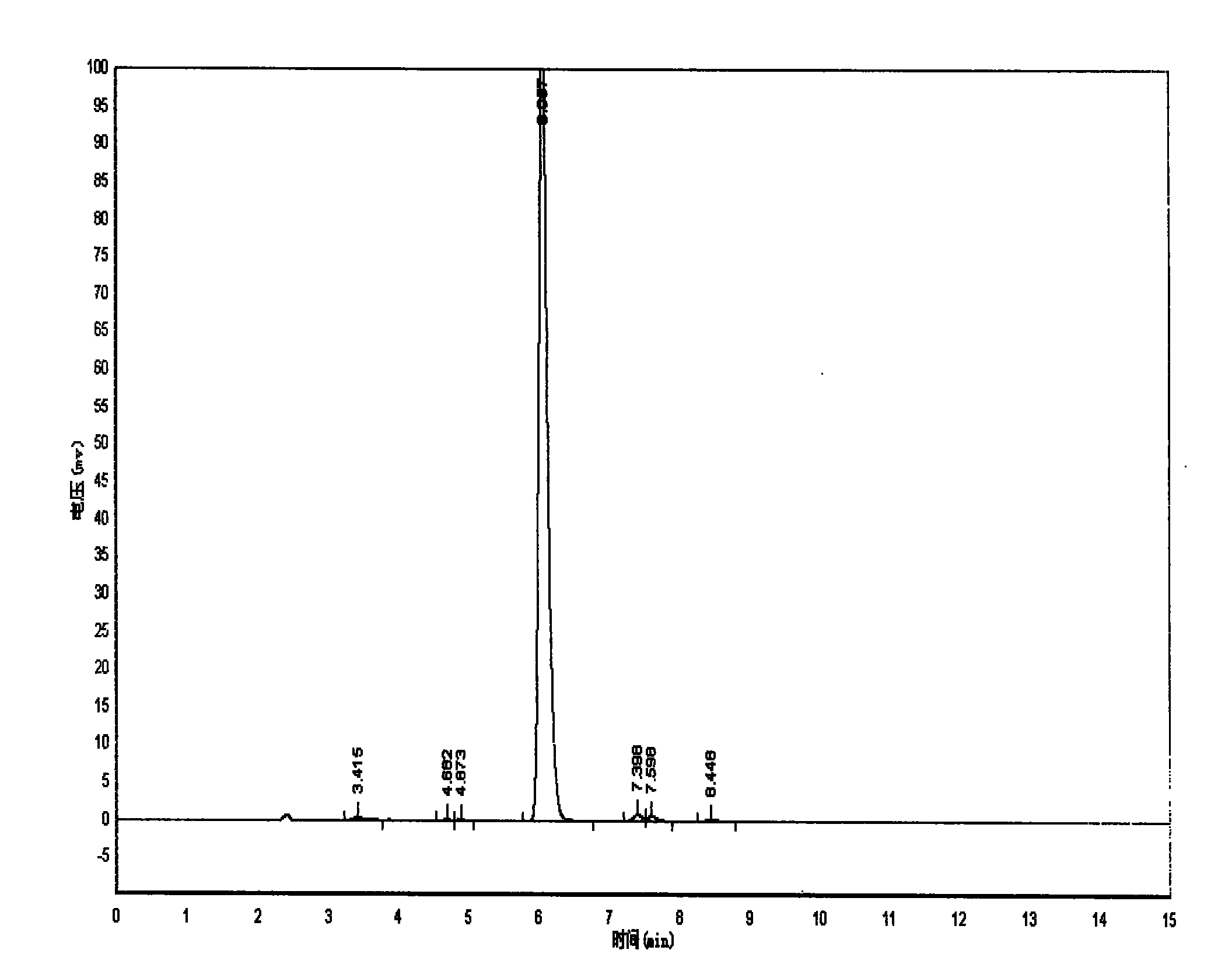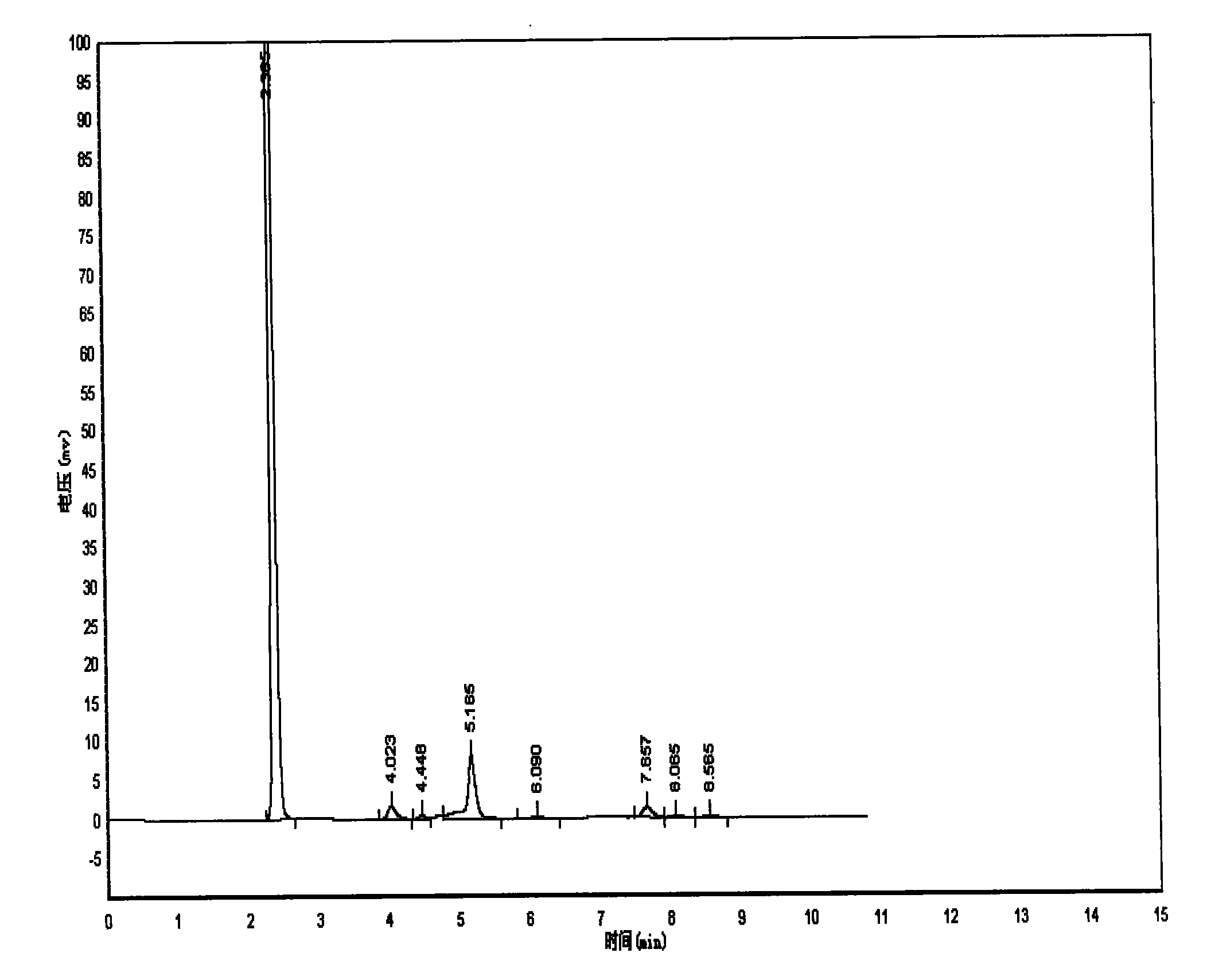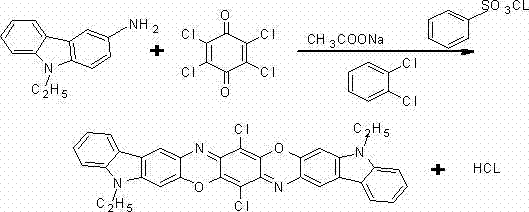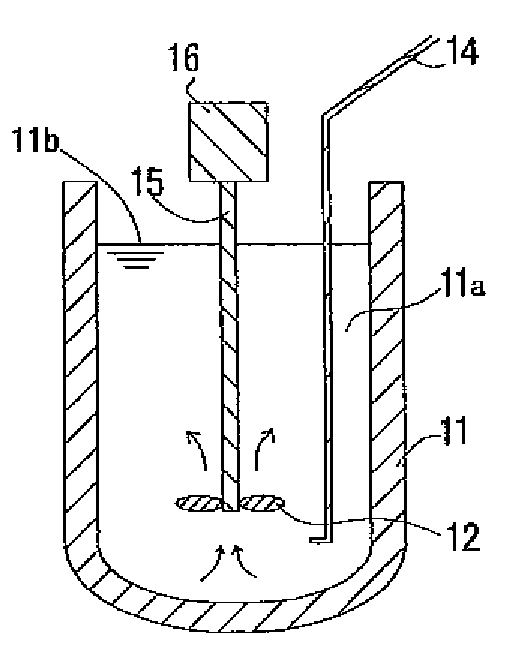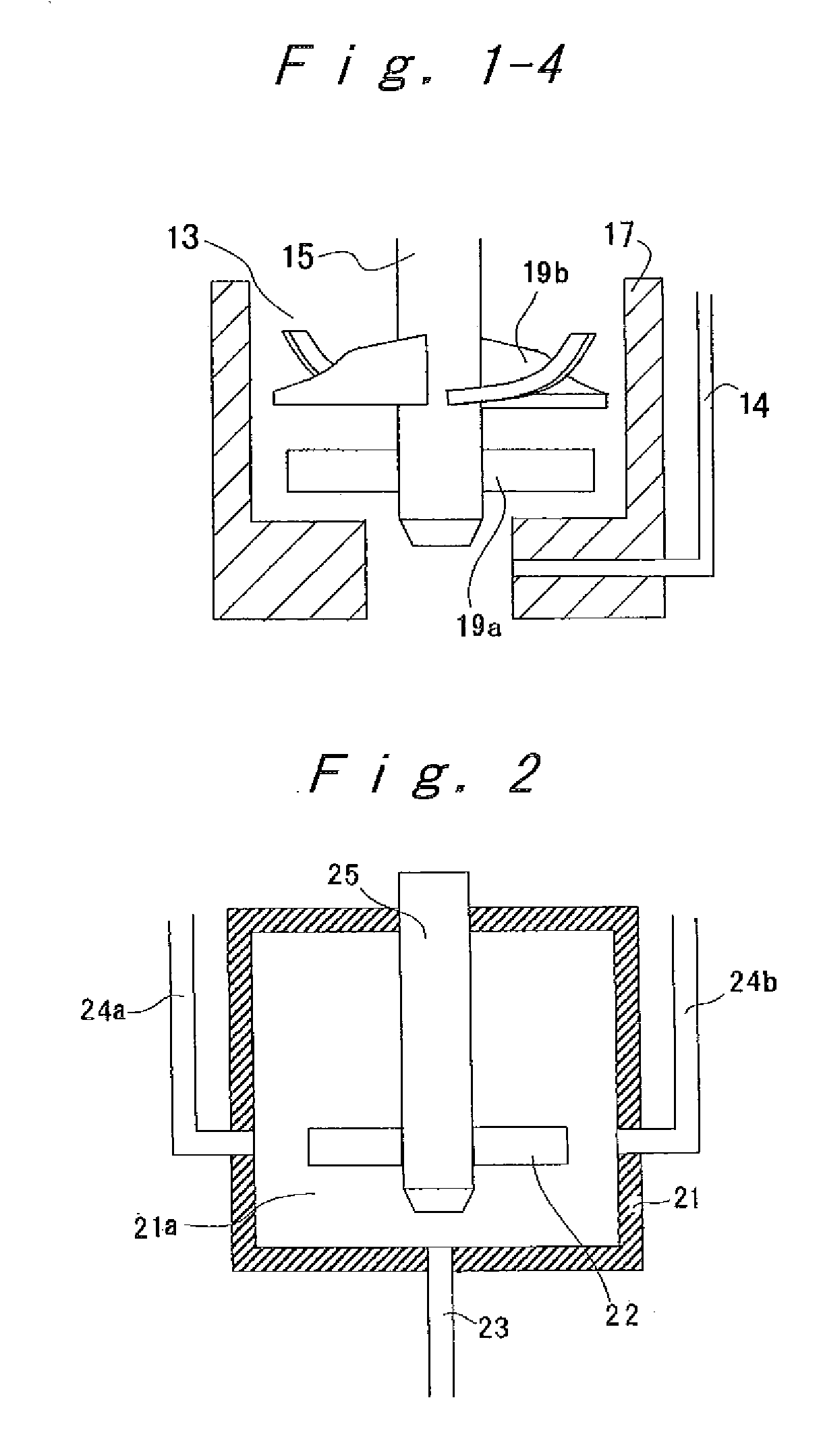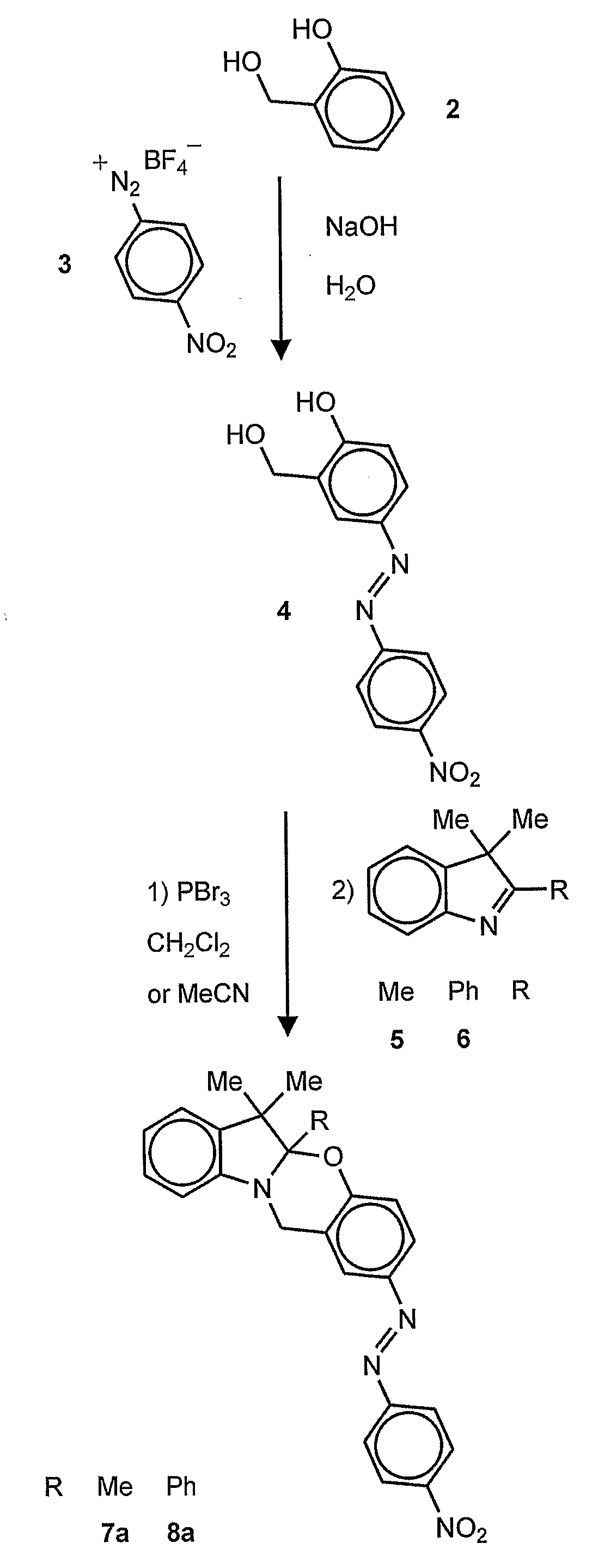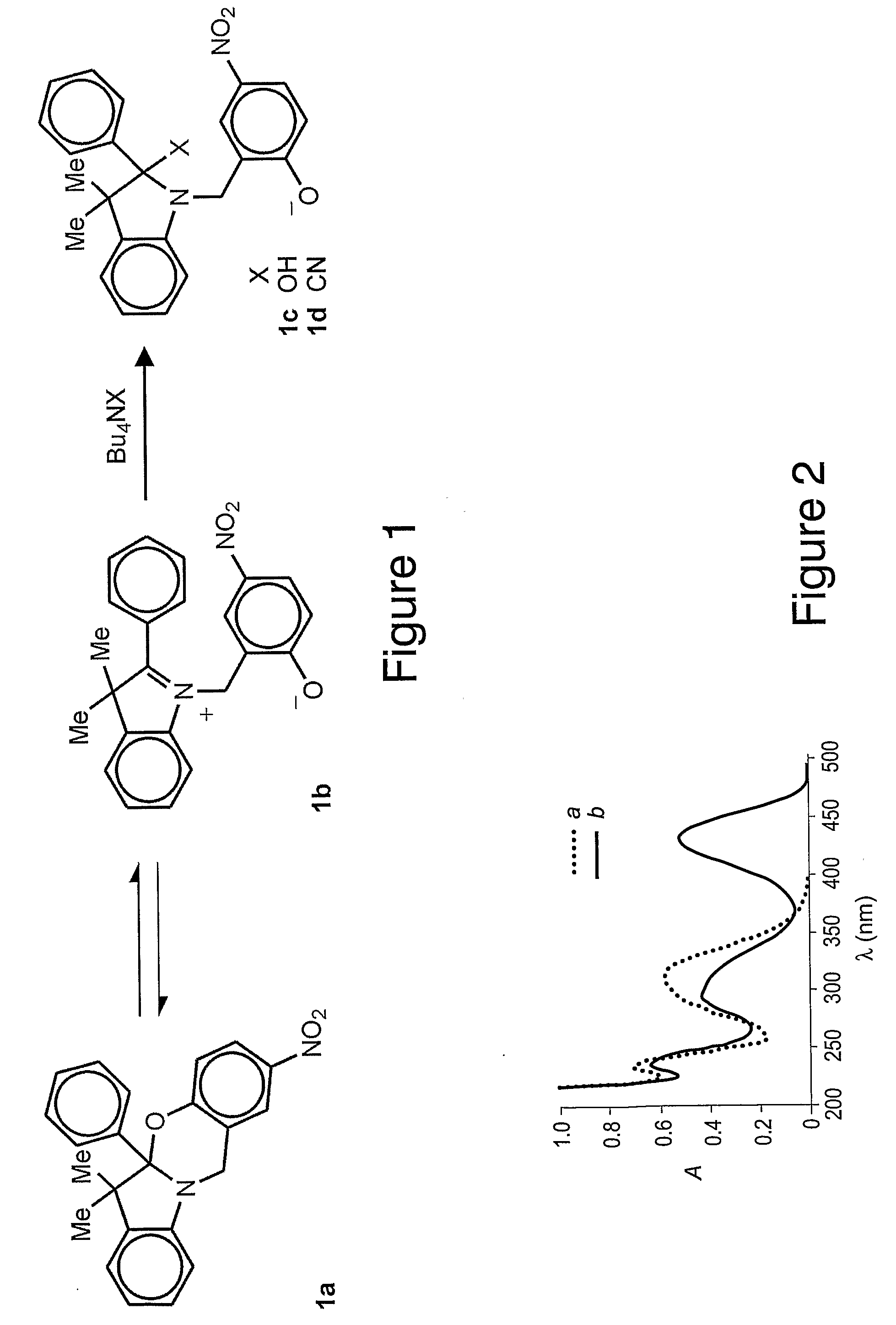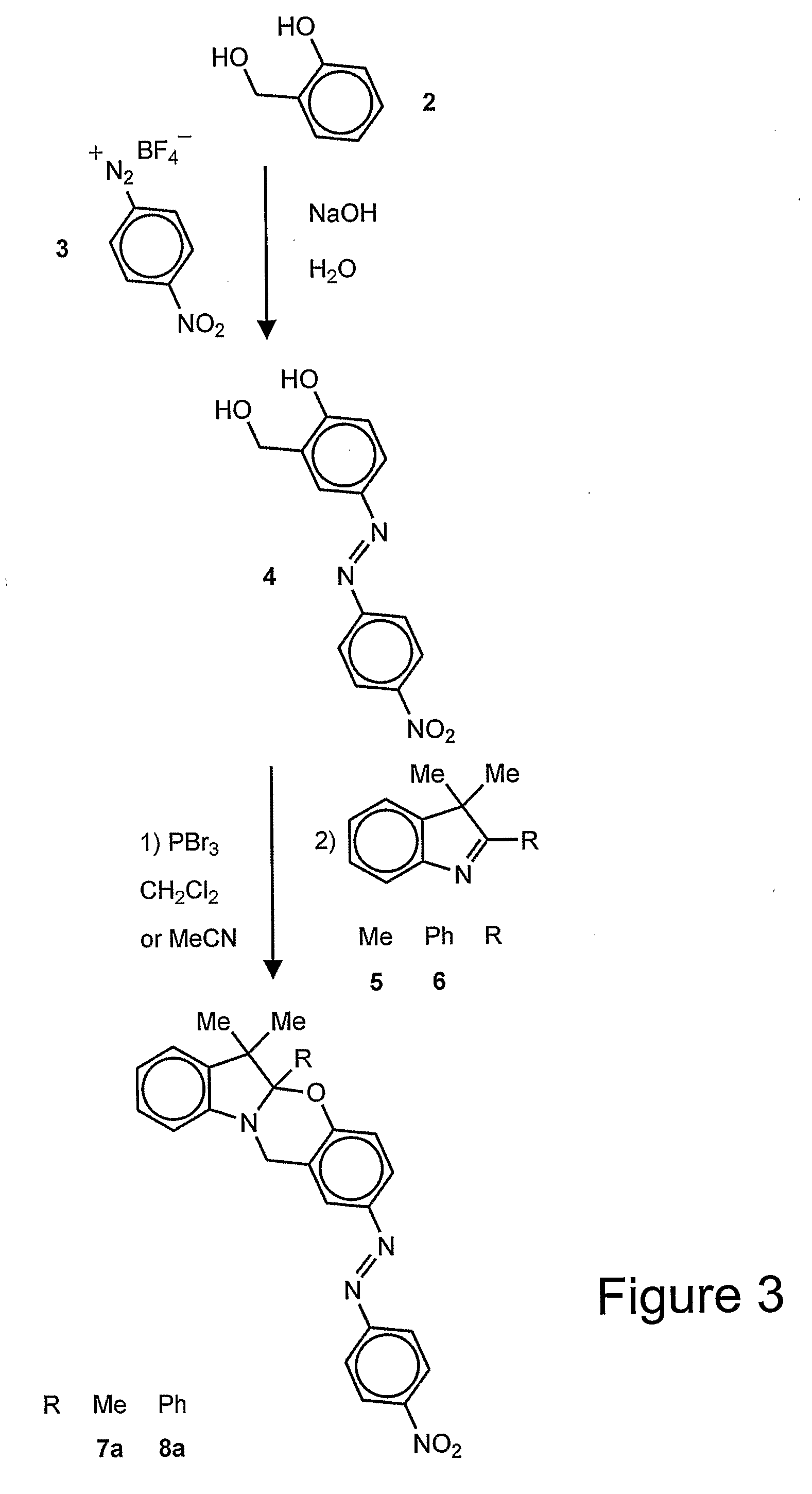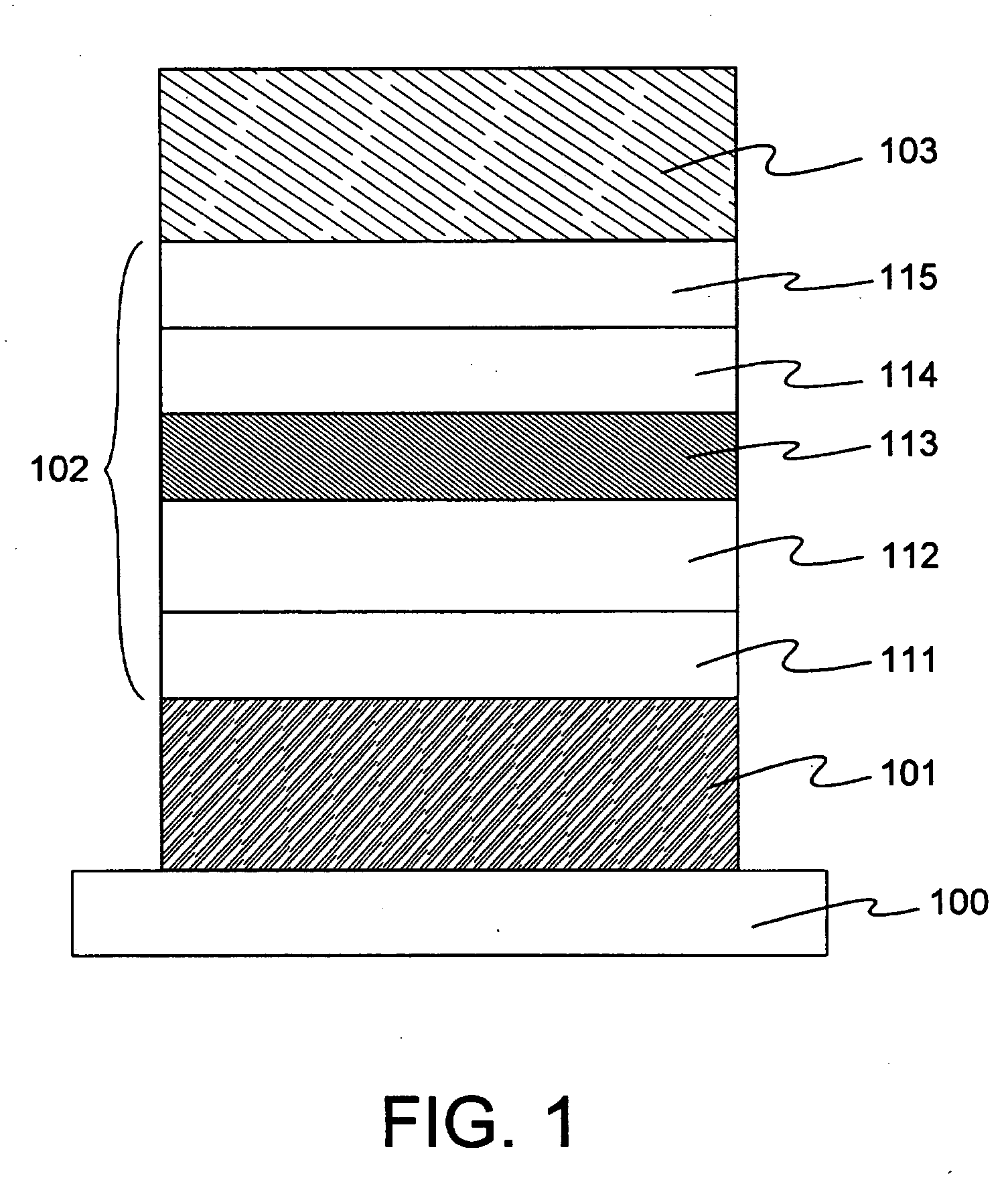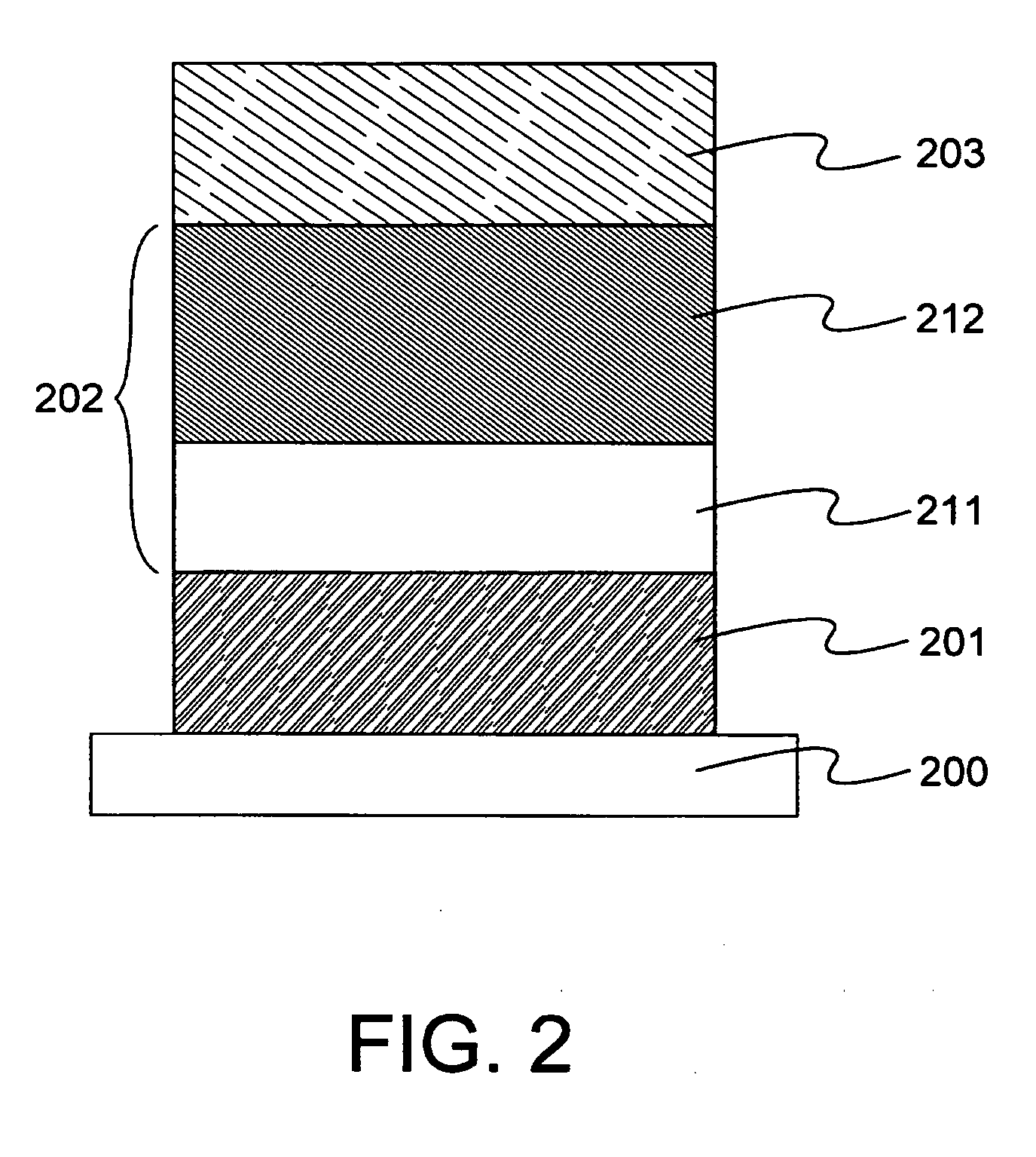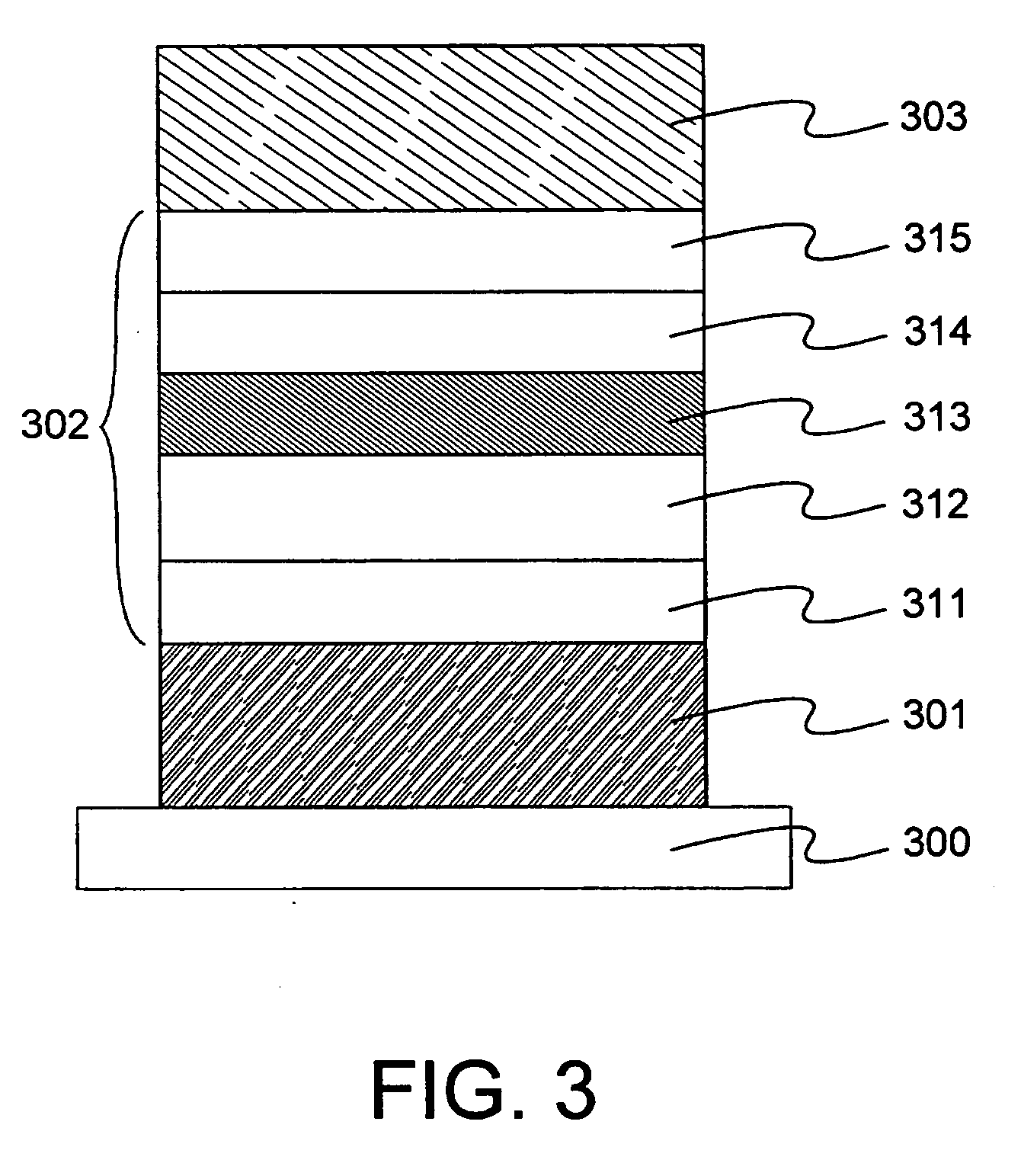Patents
Literature
Hiro is an intelligent assistant for R&D personnel, combined with Patent DNA, to facilitate innovative research.
215results about "Oxazine dyes" patented technology
Efficacy Topic
Property
Owner
Technical Advancement
Application Domain
Technology Topic
Technology Field Word
Patent Country/Region
Patent Type
Patent Status
Application Year
Inventor
Labeled nucleoside polyphosphates
InactiveUS7041812B2Sugar derivativesMaterial analysis by observing effect on chemical indicatorNucleic acid detectionFluorescence
The present invention describes new compositions of matter in the form of labeled nucleoside polyphosphates with four or more phosphates. In addition compositions of nucleoside polyphosphates with four or more phosphates that are substrates for nucleic acid polymerases with enhanced substrate properties and methods of using these nucleoside polyphosphates for nucleic acid detection, characterization and quantification are described. The compositions provided by this invention include nucleoside polyphosphate, dideoxynucleoside polyphosphate, or deoxynucleoside polyphosphate analogues which have colorimetric, chemiluminescent, or fluorescent moieties, mass tags or an electrochemical tags attached to the terminal-phosphate. When a nucleic acid polymerase uses this analogue as a substrate, an enzyme-activatable label would be present on the inorganic polyphosphate by-product of phosphoryl transfer. Removal of the polyphosphate product of phosphoryl transfer via phosphate or polyphosphate transferring enzyme leads to a detectable change in the label attached thereon. When the polymerase assay is performed in the presence of a phosphatase, there is provided a convenient method for real-time monitoring of DNA or RNA synthesis and detection of a target nucleic acid.
Owner:GLOBAL LIFE SCI SOLUTIONS USA LLC
Red-emitting [8,9]benzophenoxazine nucleic acid dyes and methods for their use
InactiveUS6140500AImprove absorption rateGood light fastnessOrganic chemistryMaterial analysis by observing effect on chemical indicatorFluorescenceLiving cell
A new class of red-emitting, fluorescent [8,9]benzophenoxazine dyes are provided that are useful for staining nucleic acids in a variety of contexts, including in solutions, in electrophoretic gels or other matrices, in blotting experiments and in assays employing intact, live cells. The new dyes are brighter and permeate cells faster than currently available red-emitting live-cell nucleic acid stains.
Owner:APPL BIOSYSTEMS INC
Labeled nucleoside polyphosphates
InactiveUS20030124576A1Sugar derivativesMaterial analysis by observing effect on chemical indicatorNucleic acid detectionFluorescence
The present invention describes new compositions of matter in the form of labeled nucleoside polyphosphates with four or more phosphates. In addition compositions of nucleoside polyphosphates with four or more phosphates that are substrates for nucleic acid polymerases with enhanced substrate properties and methods of using these nucleoside polyphosphates for nucleic acid detection, charcterization and quantification are described. The compositions provided by this invention include nucleoside polyphosphate, dideoxynucleoside polyphosphate, or deoxynucleoside polyphosphate analogues which have calorimetric, chemiluminescent, or fluorescent moieties, mass tags or an electrochemical tags attached to the terminal-phosphate. When a nucleic acid polymerase uses this analogue as a substrate, an enzyme-activatable label would be present on the inorganic polyphosphate by-product of phosphoryl transfer. Cleavage of the polyphosphate product of phosphoryl transfer via phosphatase leads to a detectable change in the label attached thereon. When the polymerase assay is performed in the presence of a phosphatase, there is provided a convenient method for real-time monitoring of DNA or RNA synthesis and detection of a target nucleic acid.
Owner:GLOBAL LIFE SCI SOLUTIONS USA LLC
Terminal-phosphate-labeled nucleotides and methods of use
The present invention describes methods of detecting a nucleic acid in a sample, based on the use of terminal-phosphate-labeled nucleotides as substrates for nucleic acid polymerases. The methods provided by this invention utilize a nucleoside polyphosphate, dideoxynucleoside polyphosphate, or deoxynucleoside polyphosphate analogue which has a colorimetric dye, chemiluminescent, or fluorescent moiety, a mass tag or an electrochemical tag attached to the terminal-phosphate. When a nucleic acid polymerase uses this analogue as a substrate, an enzyme-activatable label would be present on the inorganic polyphosphate by-product of phosphoryl transfer. Cleavage of the polyphosphate product of phosphoryl transfer via phosphatase leads to a detectable change in the label attached thereon. When the polymerase assay is performed in the presence of a phosphatase, there is provided a convenient method for real-time monitoring of DNA or RNA synthesis and detection of a target nucleic acid.
Owner:GLOBAL LIFE SCI SOLUTIONS USA LLC
Luminogenic and fluorogenic compounds and methods to detect molecules or conditions
A method to detect the presence or amount of at least one molecule in a sample which employs a derivative of luciferin or a derivative of a fluorophore is provided.
Owner:PROMEGA
Laundry care compositions
ActiveUS20150322384A1Organic detergent compounding agentsDiaryl/thriaryl methane dyesLiquid mediumAdditive ingredient
A laundry care composition comprises a laundry care ingredient or adjunct and at least one compound that is capable of changing from a first color state (i.e., the initial color state in the composition) to a second color state that is perceptibly different from the first color state. A method for treating textile articles comprises the steps of: (a) providing a laundry care composition as described above; (b) adding the laundry care composition to a liquid medium; and (c) placing the textile articles in the liquid medium.
Owner:MILLIKEN & CO
Thermal activation delayed fluorescent material and organic electroluminescent device
ActiveCN105503766AShort lifeImprove efficiencyOrganic chemistryBenzene azine dyesAcridineTriplet state
The invention relates to a thermal activation delayed fluorescent material with a general formula of the structure shown as the formula (I) or the formula (II). D is one of phenoxazinyl, phenothizainyl, 9,9-dimethyl acridine, 9-methyl phenazinyl, 9-phenyl phenazinyl, 4-phenoxazinyl-1-phenyl, 4-phenothizainyl-1-phenyl, 4-(9,9-dimethyl)acridinyl-1-phenyl, 4-(9-methyl)-phenazinyl-1-phenyl, 4-(9-phenyl)phenazinyl-1-phenyl and 3,5-bis-carbazolyl-1-phenyl. The invention further relates to an organic electroluminescent device which comprises a light-emitting layer, and luminescent dye of the light-emitting layer is the thermal activation delayed fluorescent material. The singlet state-triplet state energy gap (delta EST) of the thermal activation delayed fluorescent material is very small, triplet state excitors can be converted into singlet state excitors through inverse intersystem crossing (RIST) to emit light, and the efficiency and stability of an OLED device can be improved. The formula is shown in the description.
Owner:KUNSHAN GO VISIONOX OPTO ELECTRONICS CO LTD +1
Bis-transition-metal-chelate probes
A molecule for labeling a target material is provided including two transition-metal chelates and a detectable group. The molecule has the general structural formula (I):wherein: (a) Y and Y′ are each a transition metal, (b) R1 and R1′ are each independently CH(COO−), CH(COOH), or absent; (c) R2 and R2′ are linkers each having a length of from about 3.0 to about 20 Å; and (d) X is a detectable group. The linkers may be linear or branched, may contain aromatic moieties, and may optionally be further substituted. Methods of using the molecules of the invention as probes in detecting and analyzing target materials as well as kits including the molecule of the invention are also provided.
Owner:RUTGERS THE STATE UNIV
Sulfonamide derivatives of polycyclic dyes used for analytical applications
ActiveUS20110190486A1Simple waySimple and cost-effectiveSugar derivativesPyronine/xanthon/thioxanthon/selenoxanthan/telluroxanthan dyesQuinolinePhotochemistry
The invention concerns the production of quinoline compounds containing sulfonic acid groups, the said quinoline compounds and their conversion into dyes containing sulfonic acid groups. The dyes according to the invention are used especially to label analytes, for example to label biomolecules.
Owner:ATTO TEC
Materials for organic electroluminescent devices
ActiveCN102448946AImprove power efficiencyImprove stabilityIndium organic compoundsGroup 5/15 element organic compoundsElectricityTransport layer
The present invention describes indenocarbazole derivatives having electron and hole transport properties, especially for use in the emission layer and / or charge transport layer of electroluminescent devices or as matrix material. The invention further provides a process for preparing the compounds of the invention, and electronic devices comprising them.
Owner:MERCK PATENT GMBH
Sulfonamide derivatives of polycyclic dyes used for analytical applications
ActiveUS20110172420A1Unrestricted applicabilitySimple wayOrganic chemistryPyronine/xanthon/thioxanthon/selenoxanthan/telluroxanthan dyesAnalyteQuinoline
The invention concerns the production of quinoline compounds containing sulfonic acid groups, the said quinoline compounds and their conversion into dyes containing sulfonic acid groups. The dyes according to the invention are used especially to label analytes, for example to label biomolecules.
Owner:ATTO TEC
Sulfonated [8,9] benzophenoxazine dyes and the use of their labelled conjugates
InactiveUS6465644B1Good water solubilityImprove solubilitySugar derivativesMaterial analysis by observing effect on chemical indicatorBiopolymerFluorescence
Fluorescent, sulfonated 3,7-diamino-[8,9]benzophenoxazine dyes are provided that are especially useful for labelling biopolymers and other substrates. The dye-labelled conjugates can be used in a variety of contexts, including cell surface assays employing intact, live cells and in nucleic acid detection methods. The new dyes are water soluble and can be conjugated to a variety of substrates, such as polynucleotides, nucleosides, nucleotides, peptides, proteins, antibodies, carbohydrates, ligands, particles and surfaces.
Owner:APPL BIOSYSTEMS INC
Iridium complex compound, organic electroluminescent element material, organic electroluminescent element, illumination device and display device
InactiveUS20130200340A1Improve light emission efficiencyLong life-timeGroup 5/15 element organic compoundsSolid-state devicesIridiumOrganic layer
An organic electroluminescent element in which at least one organic layer including a light emitting layer is sandwiched between an anode and a cathode,wherein the at least one organic layer includes an iridium complex compound represented by a following general formula (1).
Owner:KONICA MINOLTA OPTO
Environmental sensitive fluorogenic compounds and their application for singlet oxygen and protein detection
InactiveUS20050214807A1More sensitiveSensitive measurementOrganic chemistryMicrobiological testing/measurementProtein detectionFluorescence
Owner:JOHNSON IAIN +3
Chiral polymeric salen catalyst, and a process for preparing chiral compounds from racemic epoxides by using them
InactiveUS6903043B2Avoid deactivationEasy to produceRuthenium organic compoundsOrganic compound preparationDiolHydrolysis
The present invention relates to chiral salen catalysts and a process for preparing chiral compounds from racemic epoxides by using them. More particularly, the present invention is to provide a chiral polymeric salen catalyst and its use for producing chiral compounds such as chiral epoxides and chiral 1,2-diols economically in high yield and high optical purity by performing stereoselective hydrolysis or racemic epoxides.
Owner:RSTECH CO LTD
Compounds for electronic devices
ActiveCN103503188AImprove efficiencySolution to short lifeGroup 4/14 element organic compoundsGroup 5/15 element organic compoundsOrganic chemistryEngineering
Owner:MERCK PATENT GMBH
Latent fluorimetric indicator for biological analytes determination and the preparation method thereof
InactiveUS20100047839A1High sensitivityInterference minimizationOrganic chemistryMicrobiological testing/measurementAnalyteAssay
The present invention provides a sensitive fluorimetric indicator for analytes determination in the oxygen-insensitive DT-diaphorase-coupled dehydrogenases assay by omitting NADH, which is generated by reaction in the presence of analytes, which presents to the applicability as a biosensor for future clinical diagnostic. Furthermore, the novel long-wavelength latent fluorimetric indicator is also a user-friendly probe for monitoring DT-diaphorase activity. The fluorescence signal revealed by this process is specific and exhibited in the near red spectrum region.
Owner:NAT TAIPEI UNIV OF TECH
Rapid fluorescence tagging of glycans and other biomolecules with enhanced ms signals
ActiveUS20140179011A1Strong fluorescent signalStrong signalOrganic chemistryNaphthalimide/phthalimide dyesGlycanFluorescence
Owner:WATERS TECH CORP
Two-photon absorption dye-containing material, three-dimensional refractive index modulation material, three-dimensional absorption index modulation material and three-dimensional optical recording material
InactiveUS20050019711A1Improve preservation qualityImprove spatial resolutionStyryl dyesMonoazo dyesTwo-photon absorptionOptical recording
To provide a two-photon absorption dye-containing material having a great off-resonant two-photon absorption cross section and comprising a two-photon absorption dye capable of decoloring itself through off-resonant two-photon absorption, useful for a three-dimensional refractive index or absorption index modulation material, a three-dimensional optical recording medium, three-dimensional refractive index modulation method and recording and reproducing method for a three-dimensional optical recording medium a two-photon absorption dye-containing material comprising at least a two-photon absorption dye capable of decoloring itself through two-photon absorption.
Owner:FUJIFILM CORP +1
Luminogenic and fluorogenic compounds and methods to detect molecules or conditions
ActiveUS20080299593A1Low backgroundHigh sensitivityCompound screeningApoptosis detectionLuciferinFluorescein
A method to detect the presence or amount of at least one molecule in a sample which employs a derivative of luciferin or a derivative of a fluorophore is provided. Compounds and compositions for carrying out the methods of the invention are also provided.
Owner:PROMEGA CORP
Organometal complex, electroluminescence material using the complex, and electroluminescence element using the complex
ActiveUS7041390B2Low costSynthesize the ligand representedIndium organic compoundsDischarge tube luminescnet screensElectricityHeat resistance
Organometal complexes which are obtainable with a good yield by using a ligand which can be easily synthesized are provided. The organometal complexes are excellent in heat resistance. An electroluminescence element having high light emission efficiency is manufactured using the organometal complex. Therefore, the organometal complex represented by the general formula (1) is synthesized. Further, this is applied to the electroluminescence element.
Owner:SEMICON ENERGY LAB CO LTD
Organic electroluminescent element
ActiveUS20150340623A1Long life-timeReduce the driving voltageOrganic chemistrySolid-state devicesFluorescenceOrganic electroluminescence
An organic electroluminescence device includes an anode, a cathode and an emitting layer, in which the emitting layer includes a first compound and a second compound and each of the first compound and the second compound is a compound emitting thermally activated delayed fluorescence.
Owner:IDEMITSU KOSAN CO LTD
Rapid fluorescence tagging of glycans and other biomolecules with enhanced ms signals
ActiveUS20140242709A1Rapid fluorescence taggingQuick tagOrganic chemistryNaphthalimide/phthalimide dyesGlycanReagent
Owner:WATERS TECH CORP
Method for synthesizing permanent violet
The invention discloses a method for synthesizing permanent violet. The method comprises the following steps of: 1) alkylating, namely, in a closed reaction kettle, putting carbazole into solution consisting of an inert halogenated aryl hydrocarbon solvent and an alkali metal hydroxide; and performing a reaction with bromoethane in the presence of a quaternary ammonium salt catalyst; 2) nitrifying, namely, treating an obtained N-ethyl carbazole-contianing organic phase by using dilute nitric acid; and after cooling, crystallizing and separating, obtaining a midbody 3-nitryl-N-ethyl carbazole by washing paste; 3) reducing, namely, after dissolving a 3-nitryl-N-ethyl carbazole material in inert halogenated aryl hydrocarbon, performing hydrogenated reduction by using fermium-containing Raney's nickel as a catalyst; and 4) performing a condensation reaction and a ring closing reaction. The method has the advantages that: 1) in the alkylation of the invention, the inert halogenated aryl hydrocarbon is taken as a solvent, so that pollution and cost are reduced and production devices are simplified at the same time; 2) in the method, the temperature for the nitration is improved, so that raw material consumption and the discharge of waste water are reduced; and 3) the process of industrial hydrogenated reduction is perfected, so that the problem of waste water reduction treatment is solved basically, and energy consumption is reduced obviously.
Owner:江西紫荆颜料化工有限公司
Nitrogen analogs of copper II beta-diketonates as source reagents for semiconductor processing
InactiveUS20030097013A1Furnaces without endless coreGroup 8/9/10/18 element organic compoundsNitrogenSolvent
Nitrogen containing analogs of Copper II beta-diketonates which analogs are more stable source reagents for copper deposition when substantially free of solvents of excess ligands. The nitrogen containing analogs replace -O- with -N(R'')-wherein R'' is an alkyl group having from one to four carbon atoms. Replacement of each -O- is preferred although replacement of one -O- per cyclic ring is sufficient to improve stability of the copper source reagents. The source reagent can be purified by sublimation to remove solvents and excess ligands prior to semiconductor processing.
Owner:APPLIED MATERIALS INC
Environment-friendly production method for permanent violet RL
The invention discloses an environment-friendly production method for permanent violet RL, which comprises the following: (1) a step of alkylation which is to prepare liquid caustic soda, add a carbazole raw material, a catalyst and pure benzene in turn, drip bromoethane, stand the solution and separate out N-ethyl carbazole; (2) a step of nitration, which is to add the N-ethyl carbazole and chlorobenzene, drip nitric acid of which the weight percentage concentration is 36.5 to 37.5 percent, and separate out an intermediate 3-nitro-N-ethyl carbazole; (3) a step of reduction, which is to add chlorobenzene, 3-nitro-N-ethyl carbazole and an iron catalyst in turn, drip hydrazine hydrate to obtain a solution of 3-animo-N-ethyl carbazole and ortho-dichlorobenzene; (4) a step of condensation, which is to add ortho-dichlorobenzene into the solution of 3-animo-N-ethyl carbazole and ortho-dichlorobenzene, add tetrachlorobenzoquinone, drip sodium acetate and obtain a permanent violet RL condensation compound; and (5) a step of ring-closing reaction, which is to add benzene sulfonyl chloride, filter the solution, wash a filter cake, dry and obtain coarse permanent violet RL. The method has high conversion rate and is environment-friendly.
Owner:东台市新锦泰化工有限公司
Method of producing organic nanoparticles, organic nanoparticles thus obtained, inkjet ink for color filter, colored photosensitive resin composition and photosensitive resin transfer material, containing the same, and color filter, liquid crystal display device and ccd device, prepared using the same
InactiveUS20090059138A1Improve display characteristicsIncrease contrastMaterial nanotechnologyOrganic chemistryNanoparticleOrganic group
A method of producing organic nanoparticles, comprising:mixing a solution of an organic material dissolved in a good solvent with a solvent that is compatible with the good solvent but is a poor solvent for the organic material, to prepare a dispersion in which the organic material is being formed to organic fine particles of a size in the order of nanometer;wherein the dispersion contains a polymer compound having a weight-average molecular weight of 1,000 or more represented by the following formula (1):wherein R1 represents a (m+n)-valent connecting group; R2 represents a single bond or a divalent connecting group; A1 represents a specific monovalent organic group; when n is two or more, plural A1s may be the same or different; m represents 1 to 8; n represents 2 to 9; m+n is 3 to 10; and P1 represents a polymer compound residue.
Owner:FUJIFILM CORP
Colorimetric detection of cyanide with a chromogenic oxazine
Owner:UNIV OF MIAMI +1
Contrast agents for image enhancement in magnetic resonance imaging
A compound of formula (I): wherein, R1, R2, R3 and R4 are selected independently from hydrogen, alkyl, and alkyl substituted with one or more -O- atoms, or where R1, R2 and R3, R4 are ring residues. The compound is capable of functioning as a ligand and complexing with paramagnetic Fe(III) ion for use as a second-sphere contrast enhancing agent for magnetic resonance imaging of tissue, and a method of administering the second sphere contrast agent.
Owner:UNIVERSITY OF TOLEDO +2
Organometal complex, electroluminescence material using the complex, and electroluminescence element using the complex
ActiveUS20050006625A1Easy to synthesizeLow costIndium organic compoundsDischarge tube luminescnet screensHeat resistanceLight emission
An object of the present invention is to provide novel organometal complexes which is obtainable with a good yield by using a ligand which can be easily synthesized. Particularly, it is intended to provide the organometal complexes which is excellent in heat resistance. Further, it is intended to provide an electroluminescence element having high light emission efficiency by manufacturing the electroluminescence element using the organometal complex. Therefore, the organometal complex represented by the general formula (1) is synthesized. Further, this is applied to the electroluminescence element.
Owner:SEMICON ENERGY LAB CO LTD
Features
- R&D
- Intellectual Property
- Life Sciences
- Materials
- Tech Scout
Why Patsnap Eureka
- Unparalleled Data Quality
- Higher Quality Content
- 60% Fewer Hallucinations
Social media
Patsnap Eureka Blog
Learn More Browse by: Latest US Patents, China's latest patents, Technical Efficacy Thesaurus, Application Domain, Technology Topic, Popular Technical Reports.
© 2025 PatSnap. All rights reserved.Legal|Privacy policy|Modern Slavery Act Transparency Statement|Sitemap|About US| Contact US: help@patsnap.com



![Red-emitting [8,9]benzophenoxazine nucleic acid dyes and methods for their use Red-emitting [8,9]benzophenoxazine nucleic acid dyes and methods for their use](https://images-eureka-patsnap-com.libproxy1.nus.edu.sg/patent_img/afd26180-57a1-475e-96b2-b48fb0fbc1ff/00000001_0000.png)
![Red-emitting [8,9]benzophenoxazine nucleic acid dyes and methods for their use Red-emitting [8,9]benzophenoxazine nucleic acid dyes and methods for their use](https://images-eureka-patsnap-com.libproxy1.nus.edu.sg/patent_img/afd26180-57a1-475e-96b2-b48fb0fbc1ff/00000001_0001.png)
![Red-emitting [8,9]benzophenoxazine nucleic acid dyes and methods for their use Red-emitting [8,9]benzophenoxazine nucleic acid dyes and methods for their use](https://images-eureka-patsnap-com.libproxy1.nus.edu.sg/patent_img/afd26180-57a1-475e-96b2-b48fb0fbc1ff/00000001_0002.png)




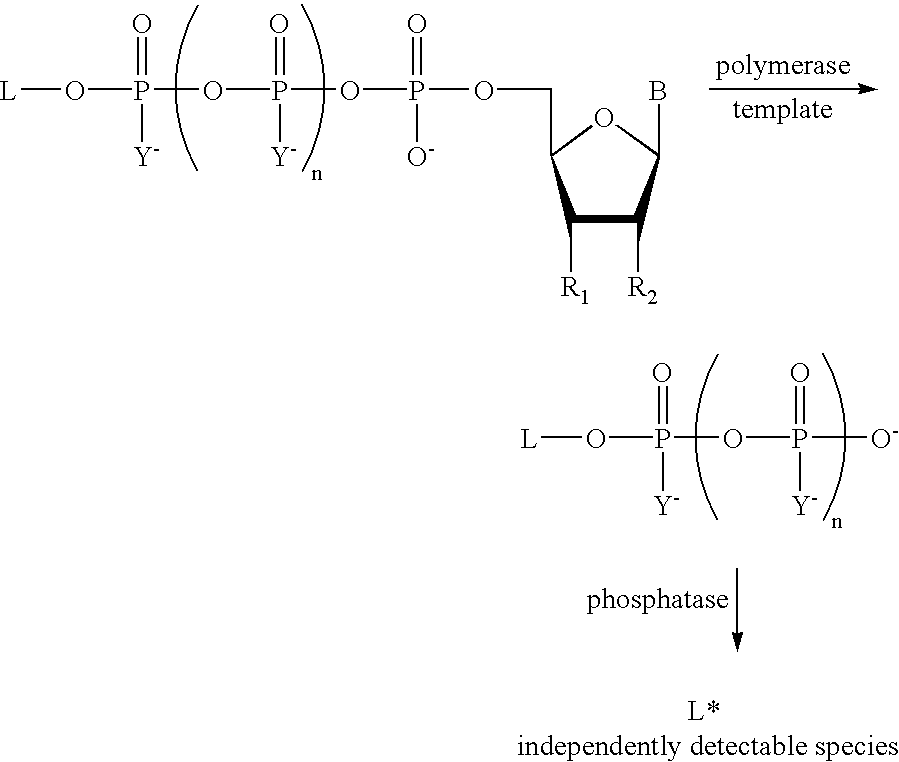

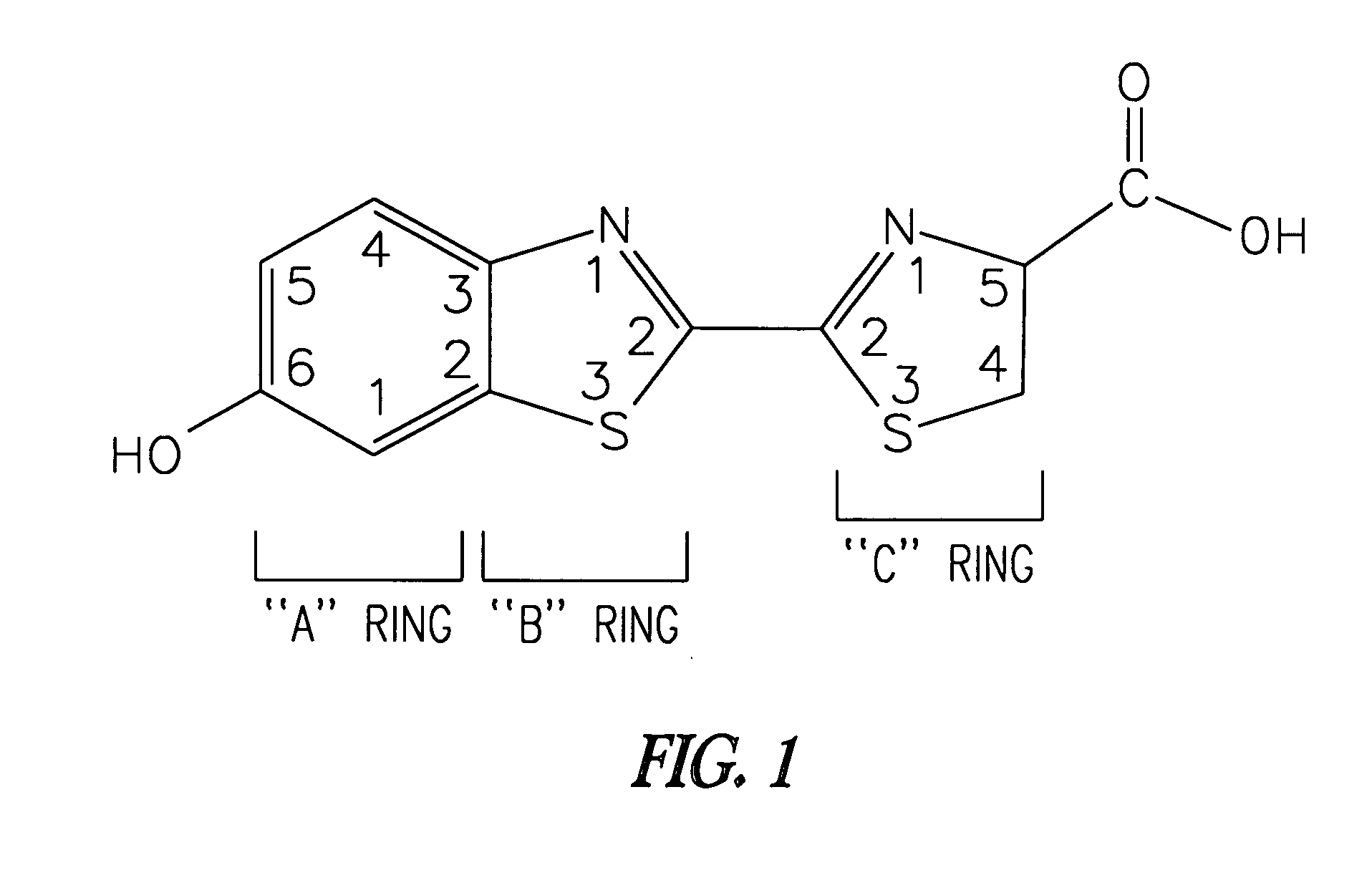
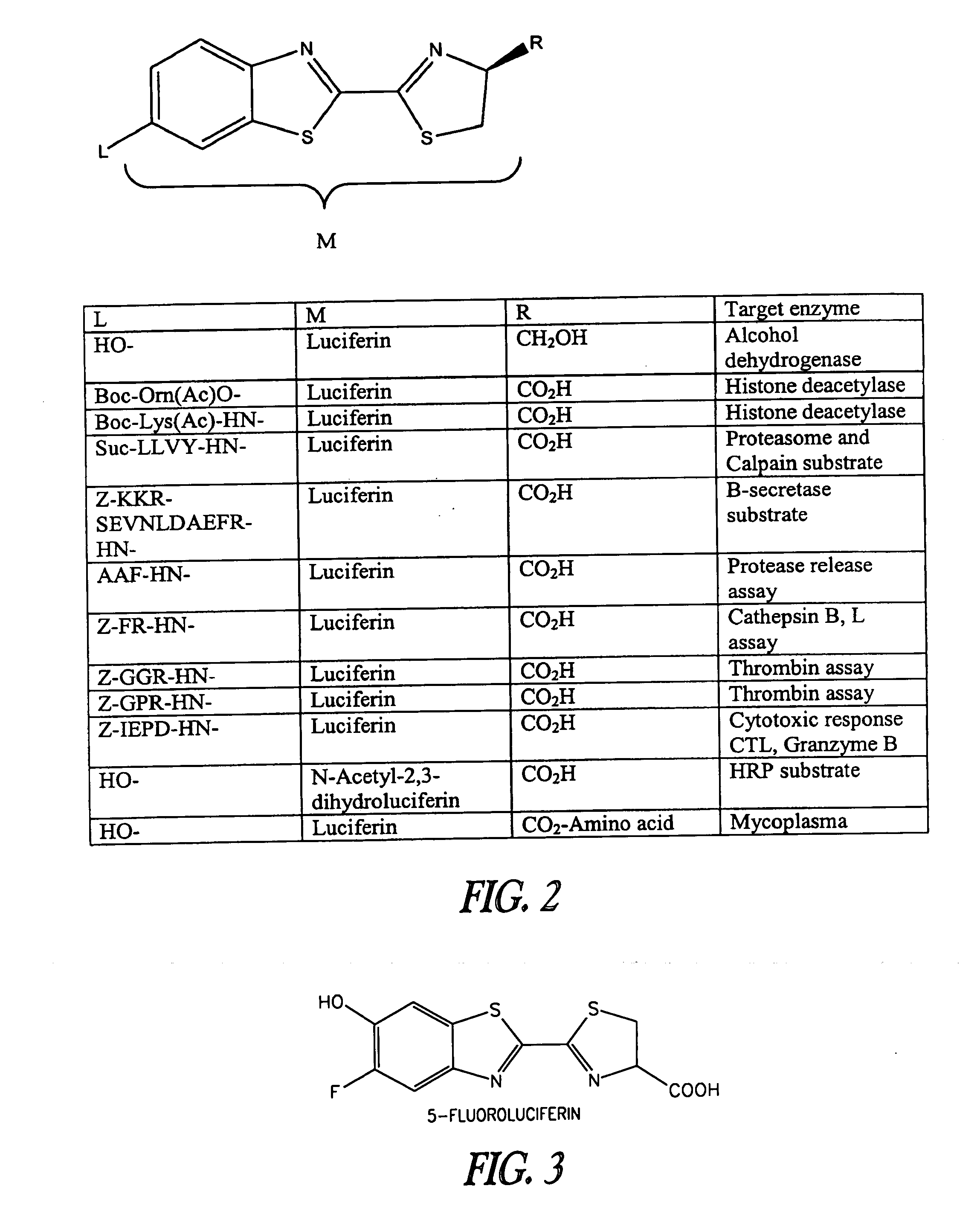
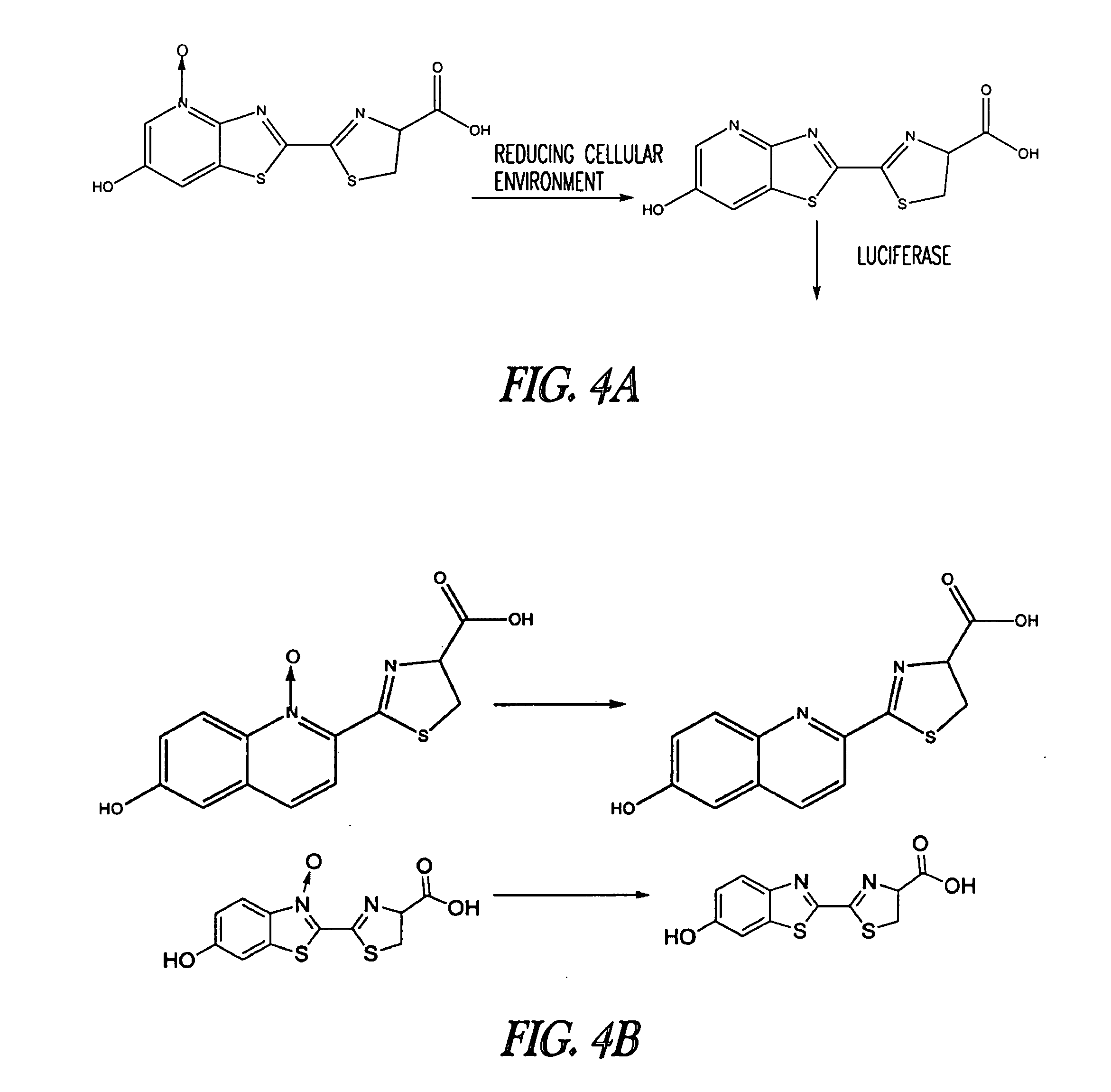

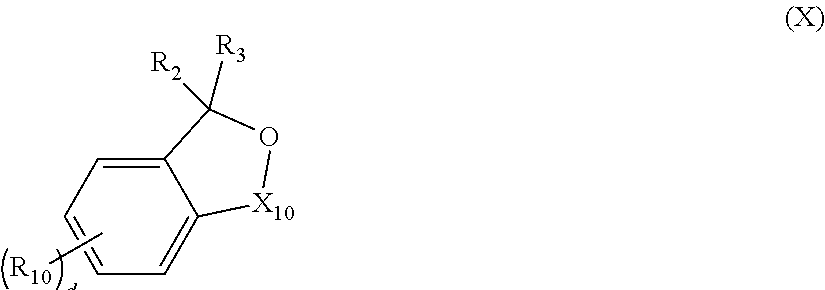


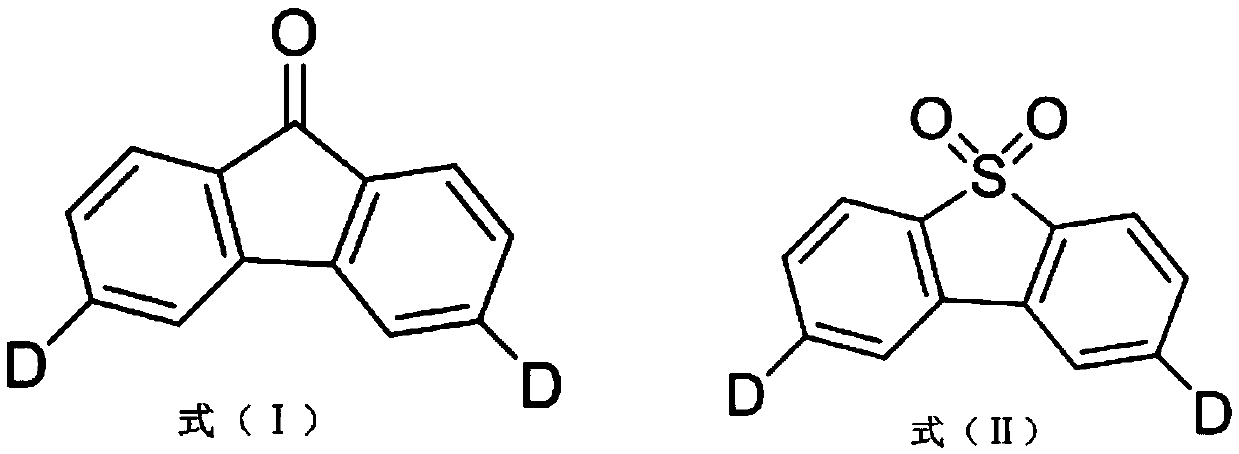
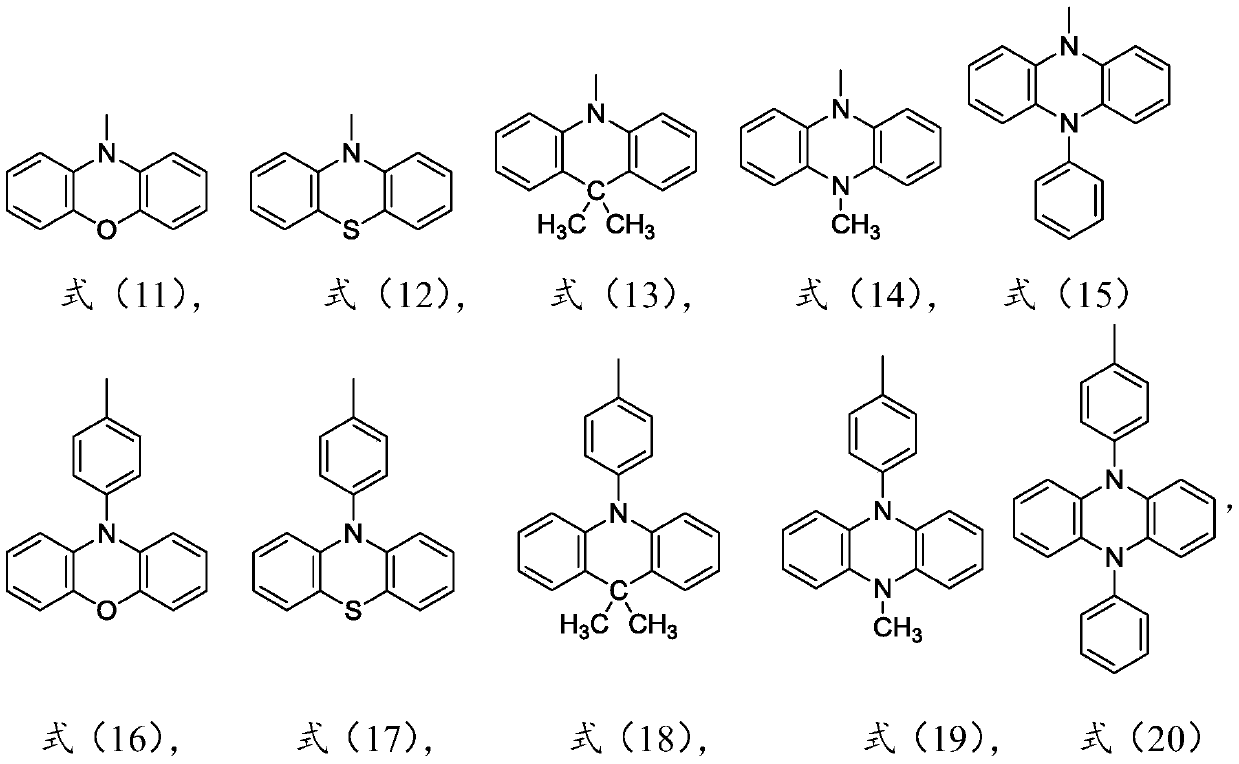
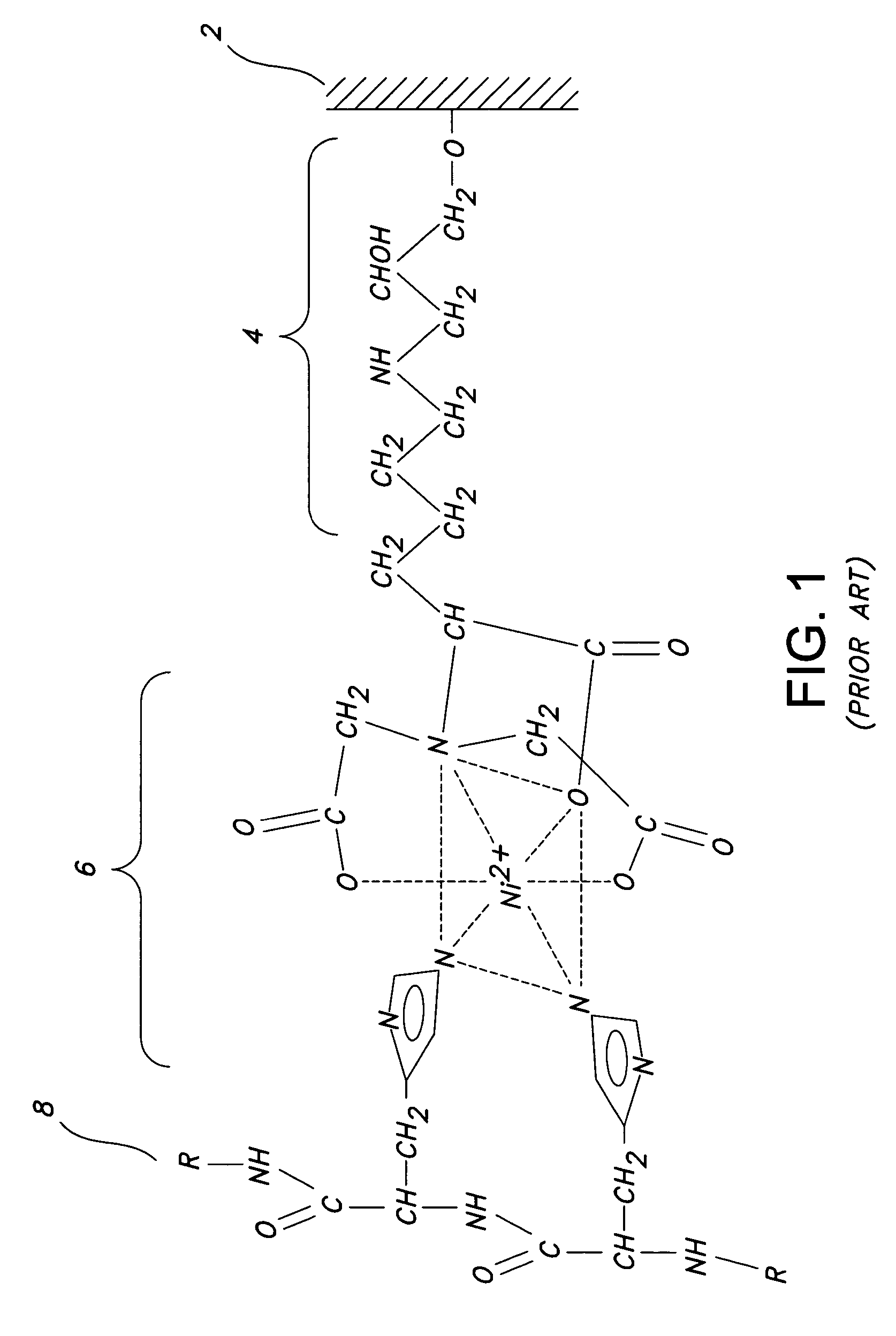
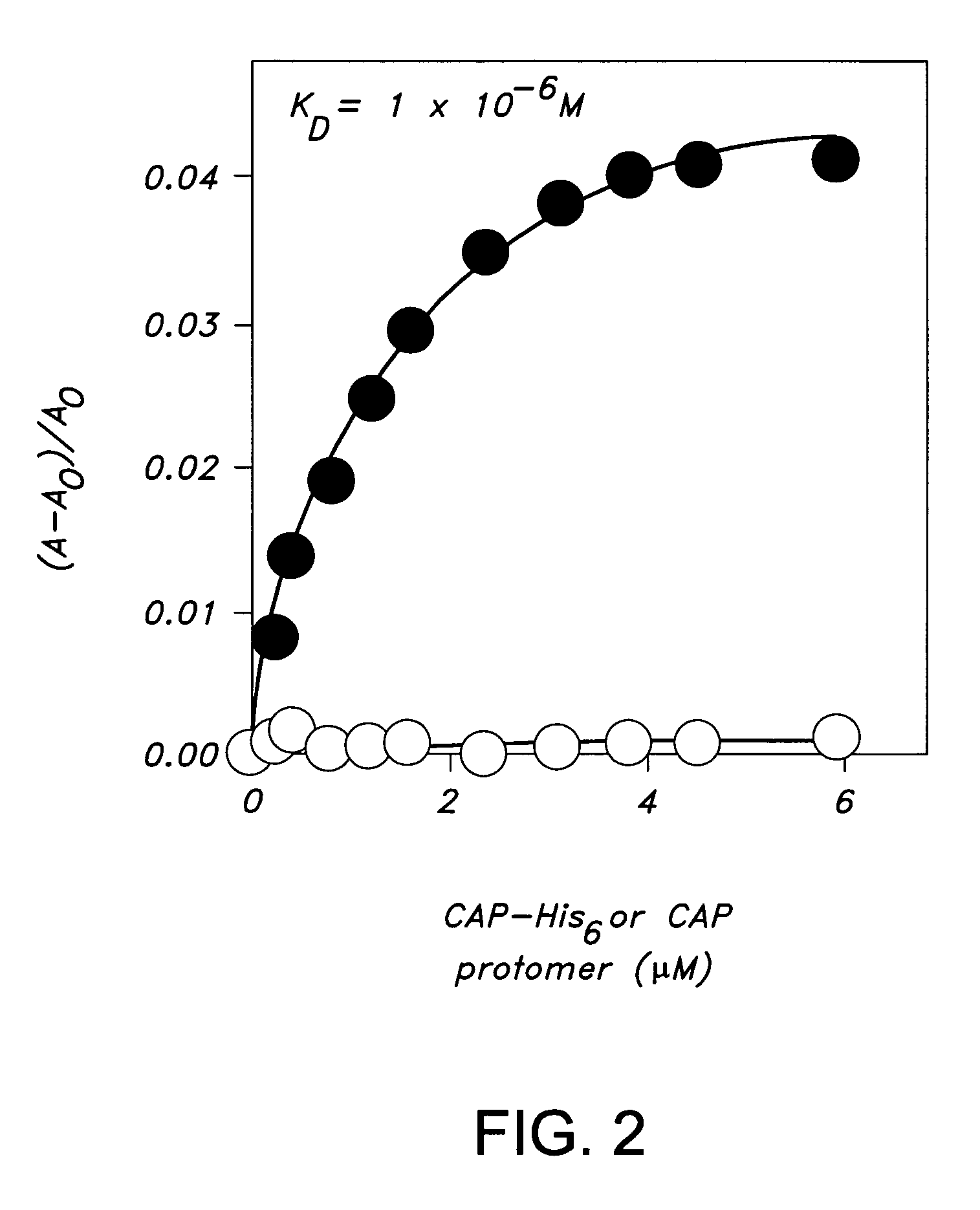
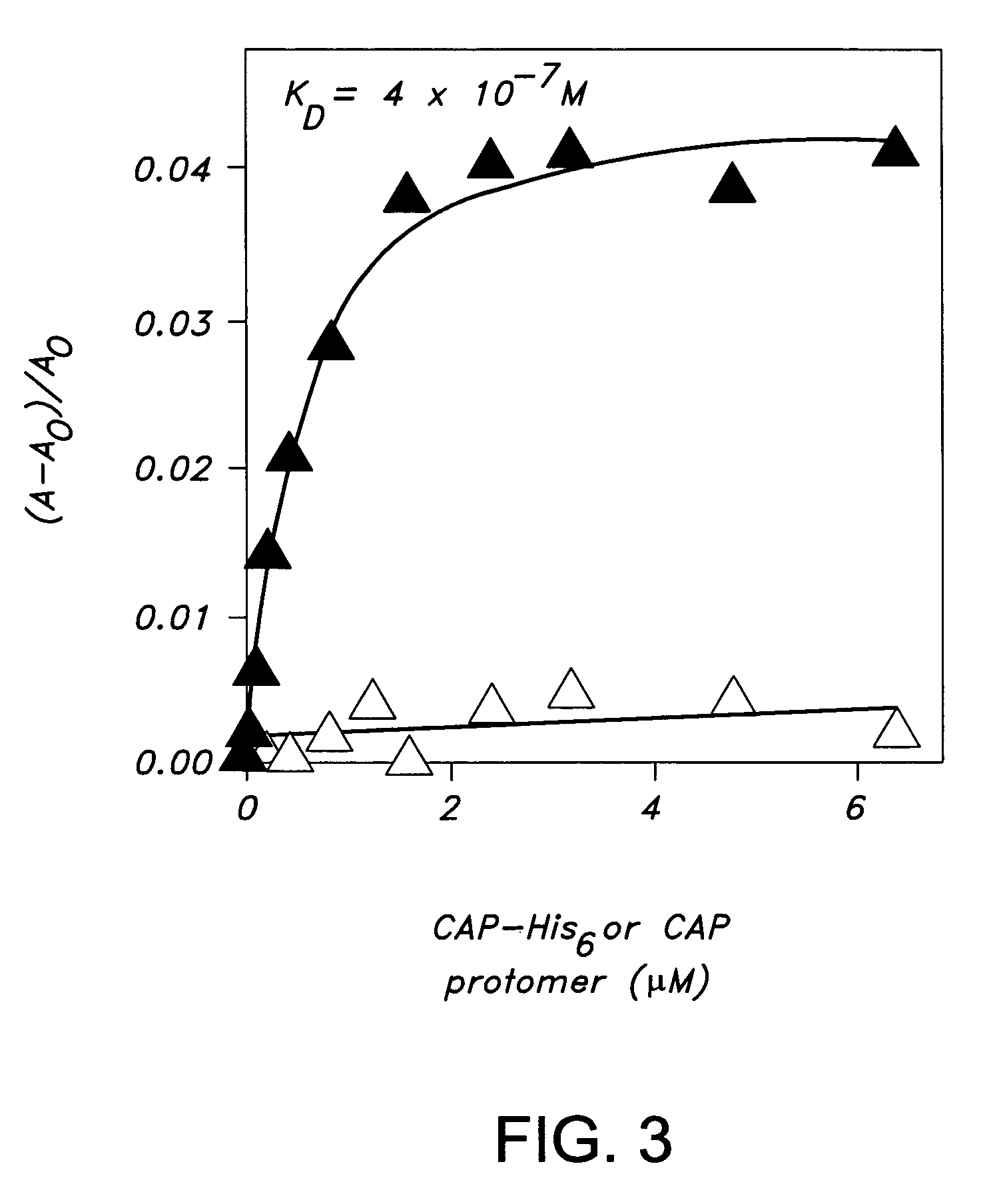
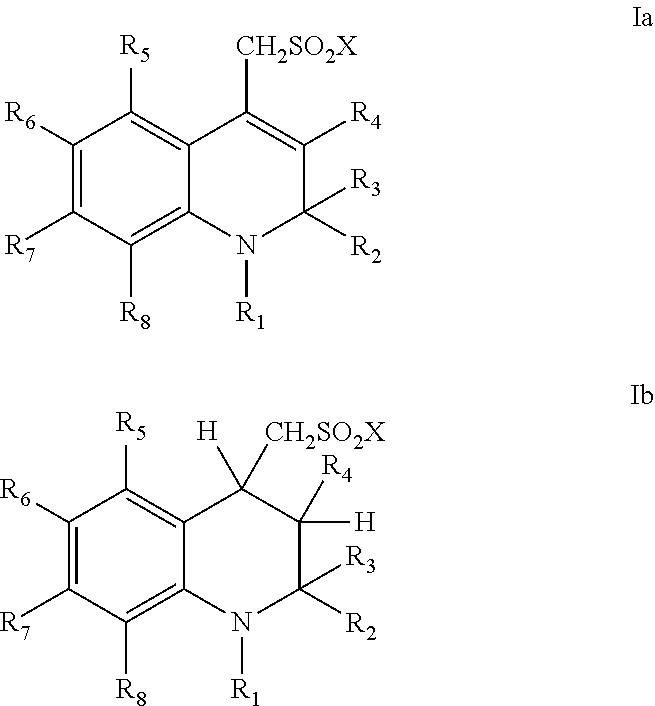

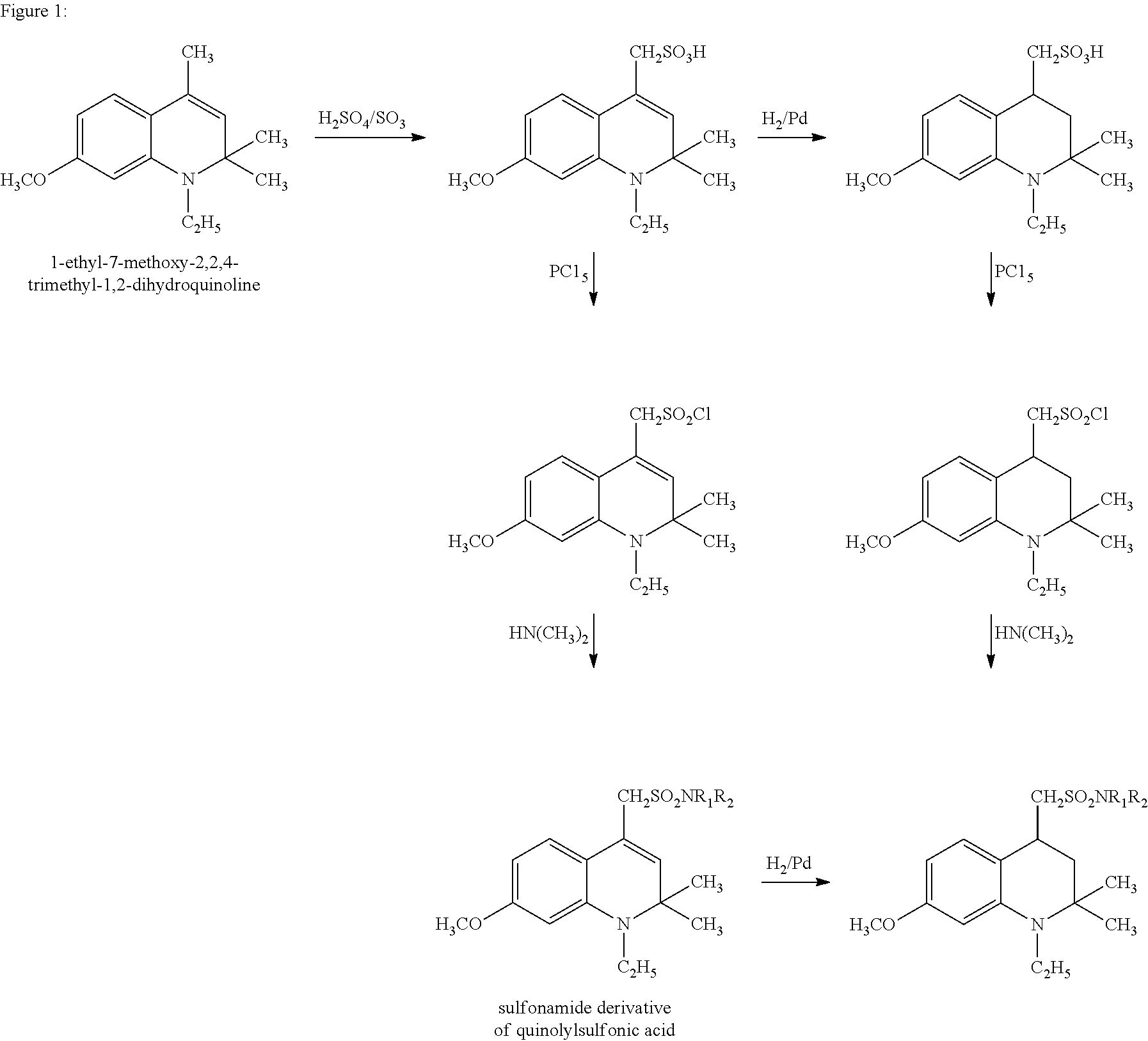
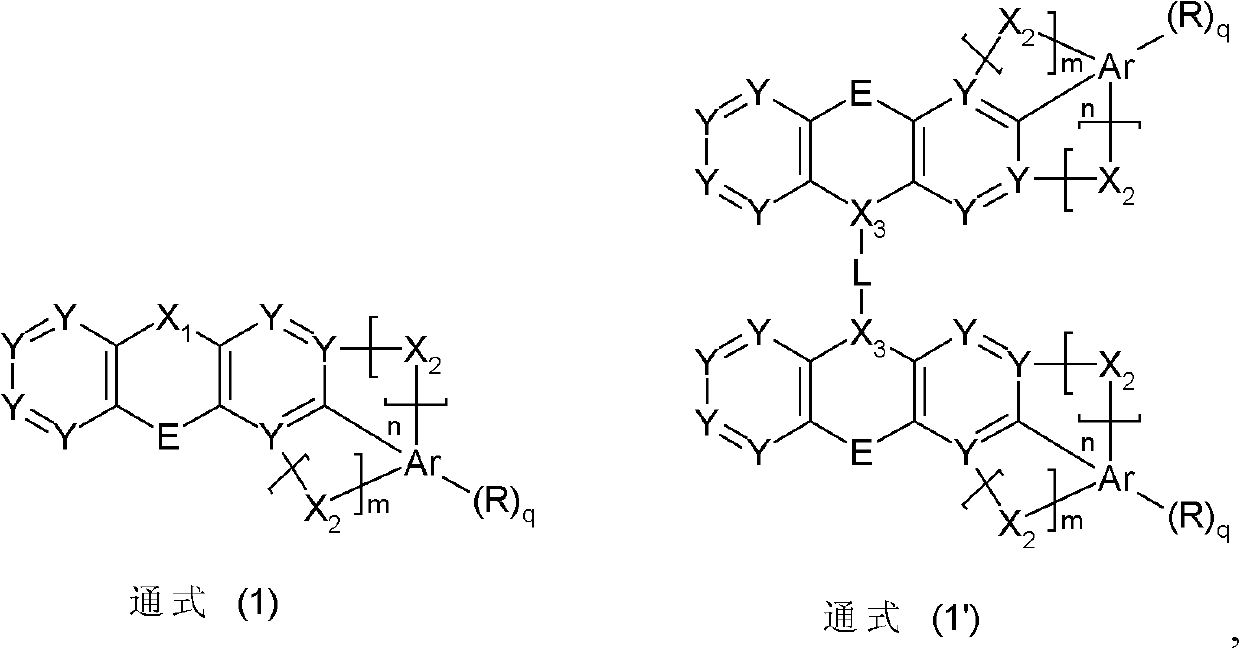
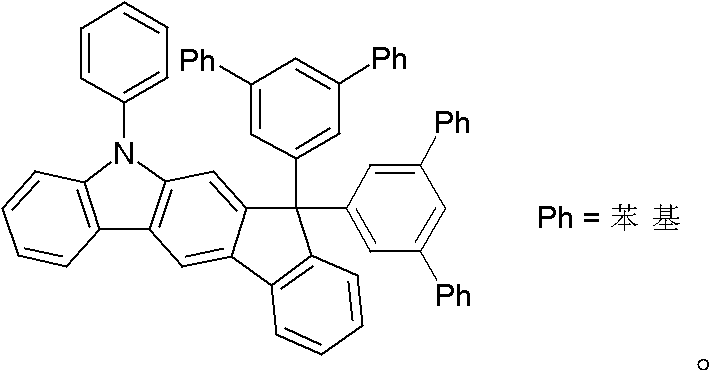
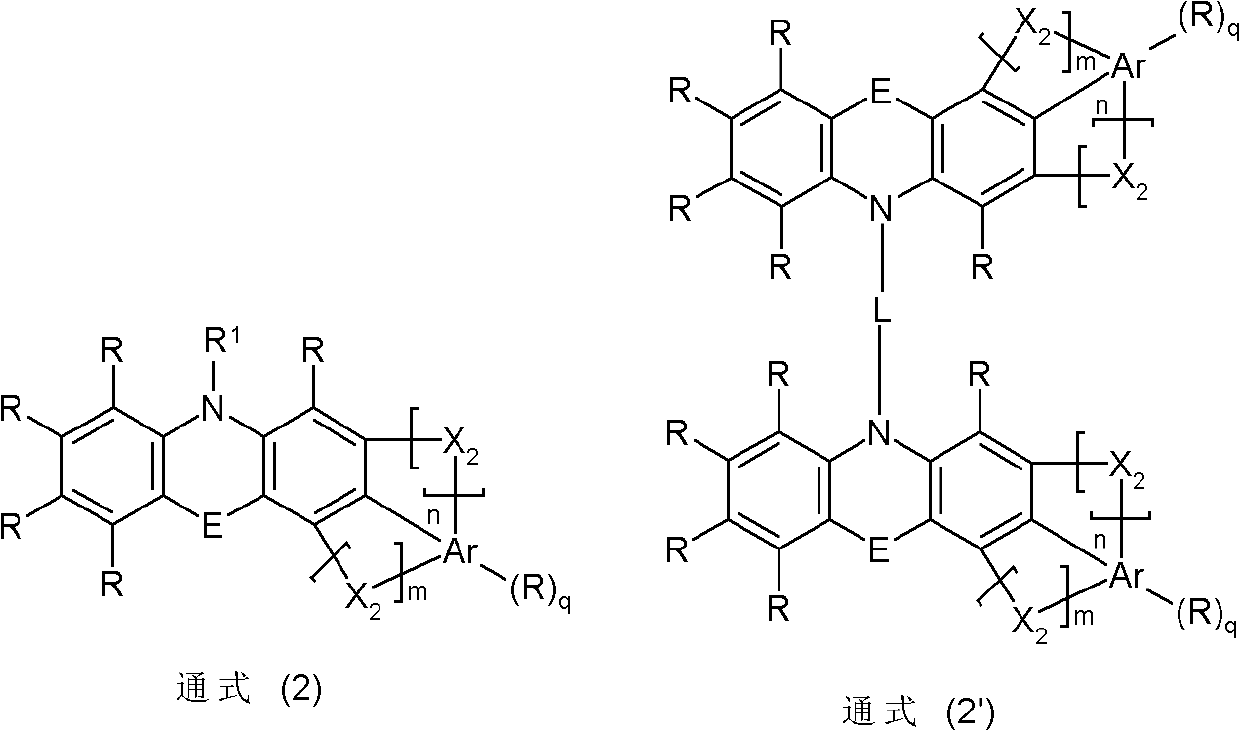



![Sulfonated [8,9] benzophenoxazine dyes and the use of their labelled conjugates Sulfonated [8,9] benzophenoxazine dyes and the use of their labelled conjugates](https://images-eureka-patsnap-com.libproxy1.nus.edu.sg/patent_img/b7ebc325-bf4d-40fc-aa8e-246d324a31fa/US06465644-20021015-C00001.png)
![Sulfonated [8,9] benzophenoxazine dyes and the use of their labelled conjugates Sulfonated [8,9] benzophenoxazine dyes and the use of their labelled conjugates](https://images-eureka-patsnap-com.libproxy1.nus.edu.sg/patent_img/b7ebc325-bf4d-40fc-aa8e-246d324a31fa/US06465644-20021015-C00002.png)
![Sulfonated [8,9] benzophenoxazine dyes and the use of their labelled conjugates Sulfonated [8,9] benzophenoxazine dyes and the use of their labelled conjugates](https://images-eureka-patsnap-com.libproxy1.nus.edu.sg/patent_img/b7ebc325-bf4d-40fc-aa8e-246d324a31fa/US06465644-20021015-C00003.png)
